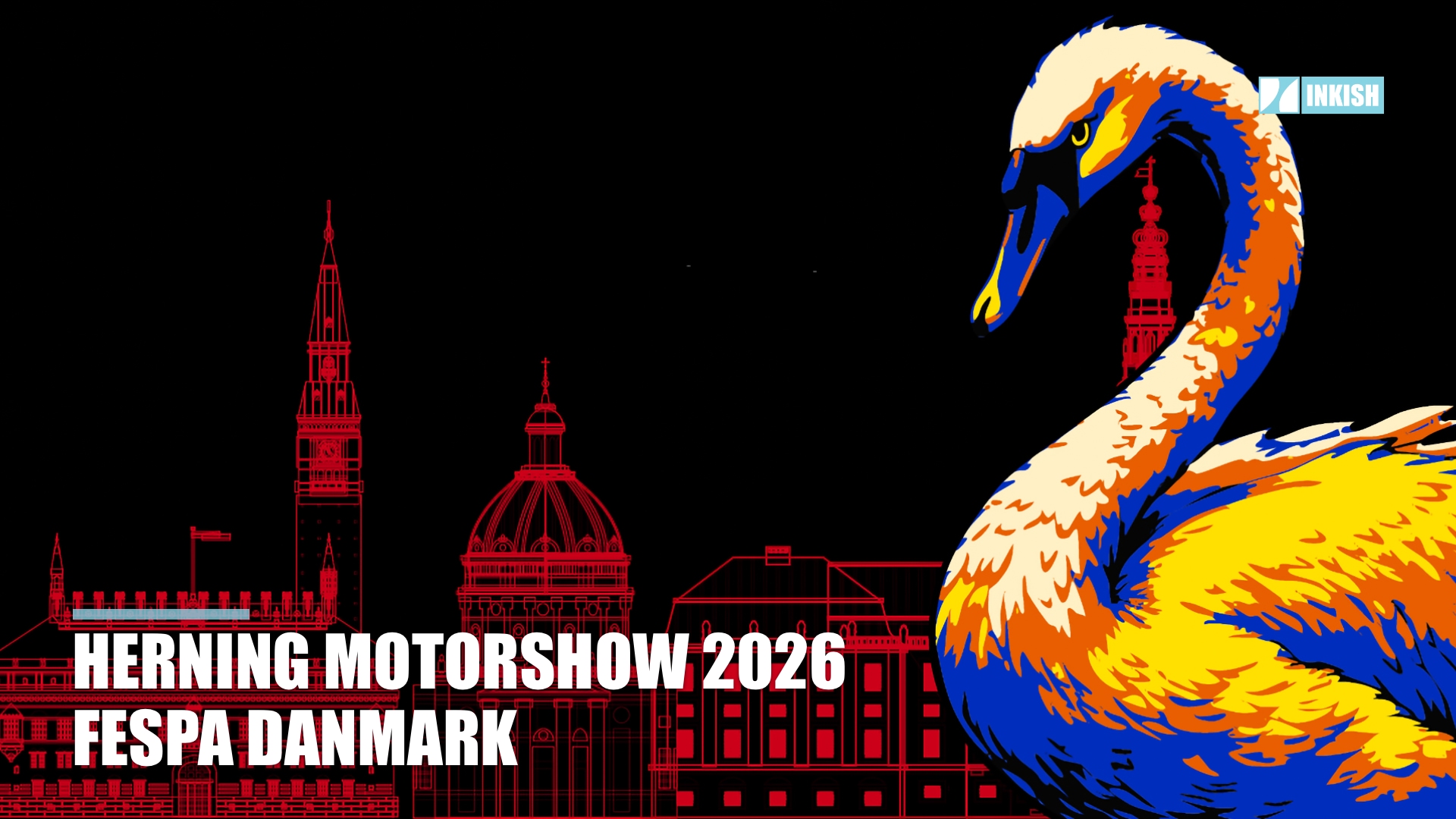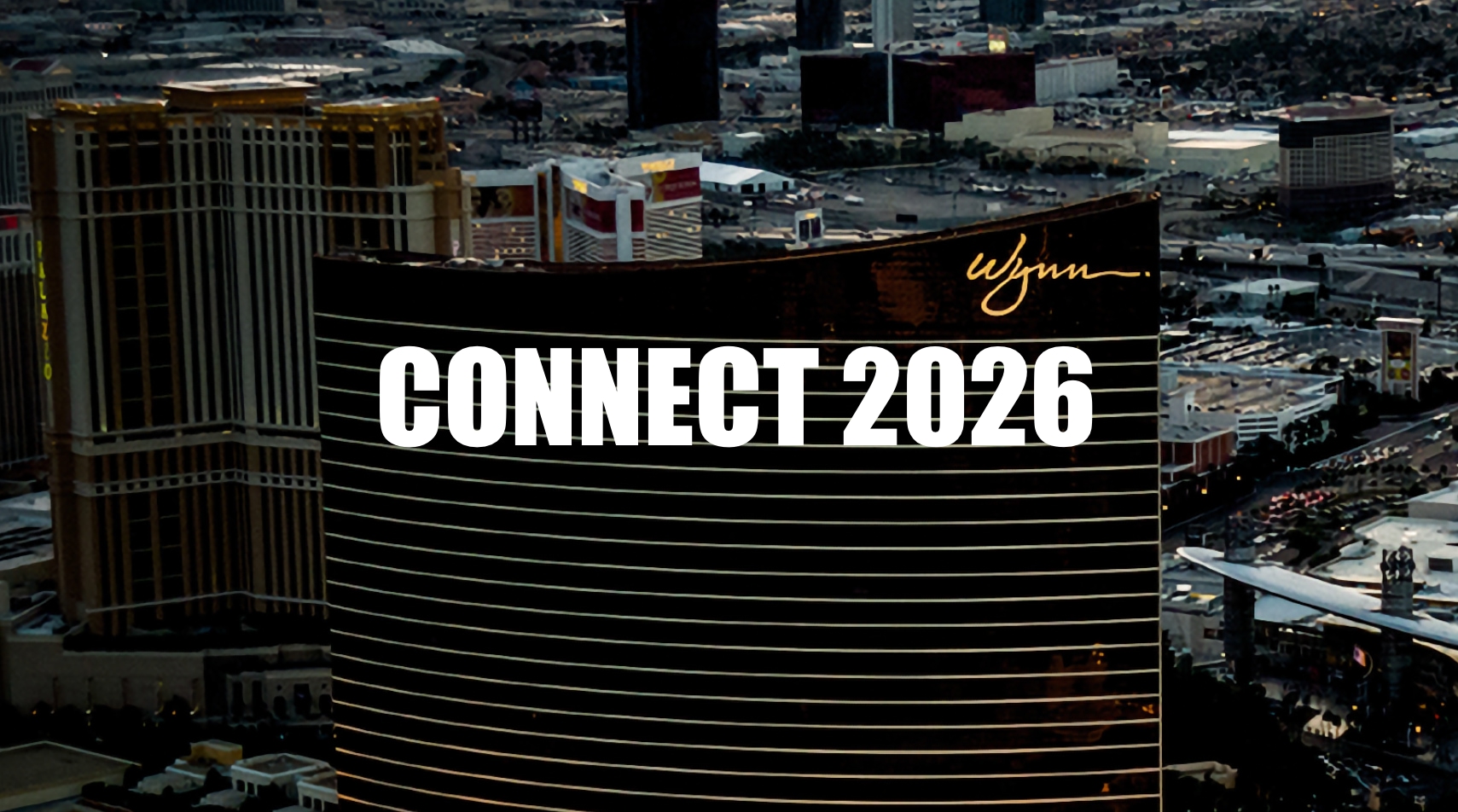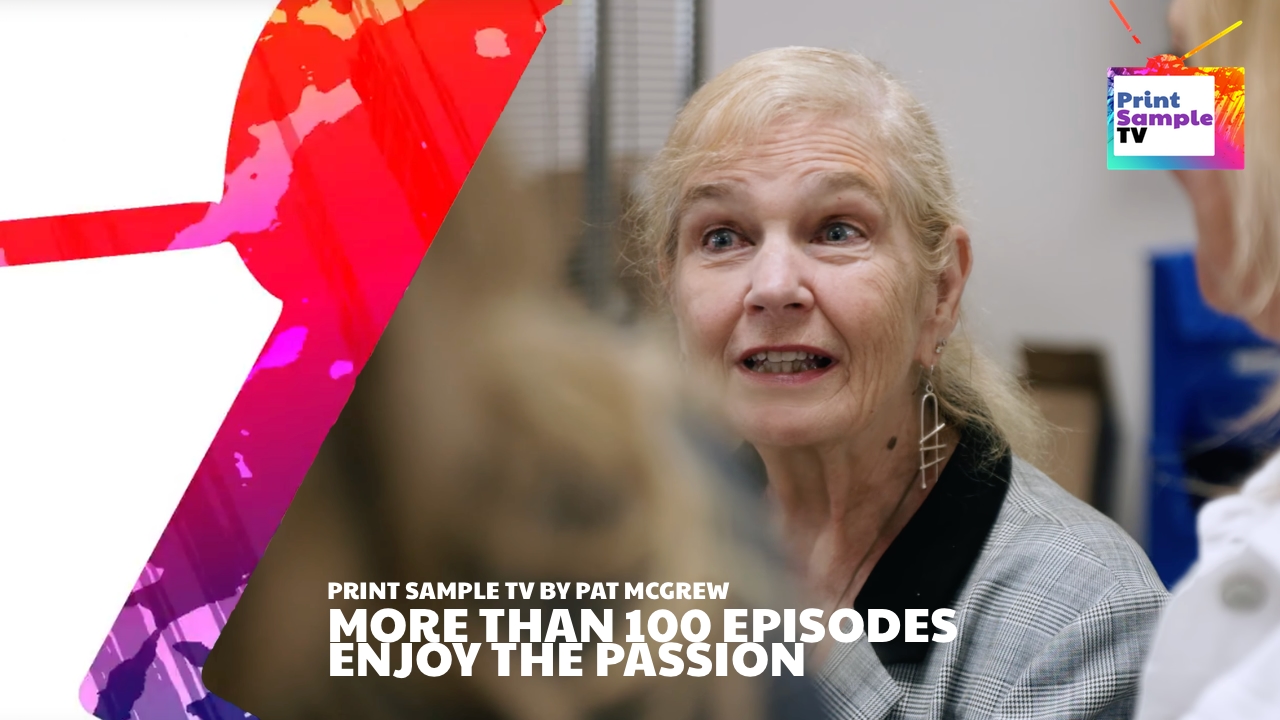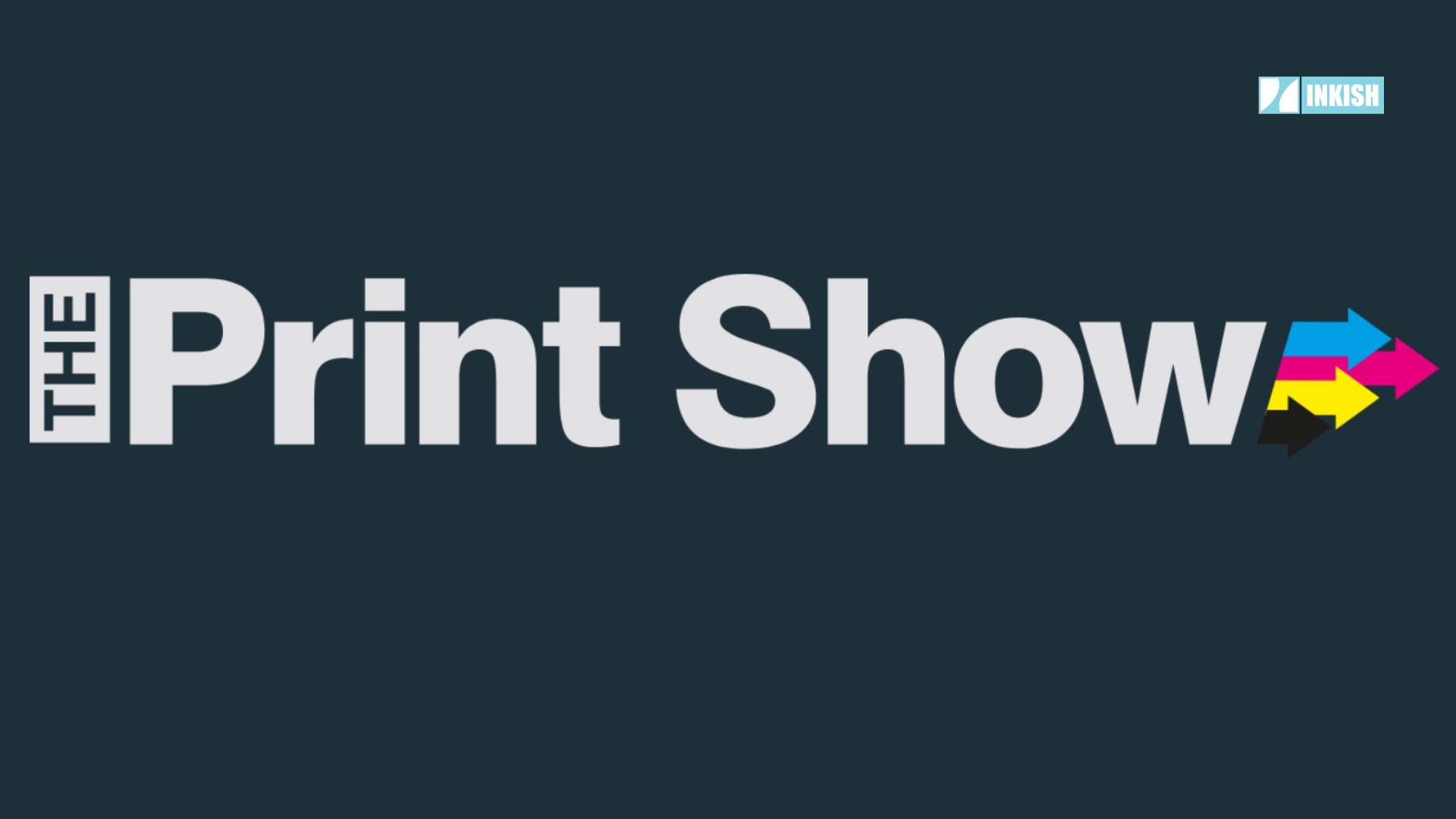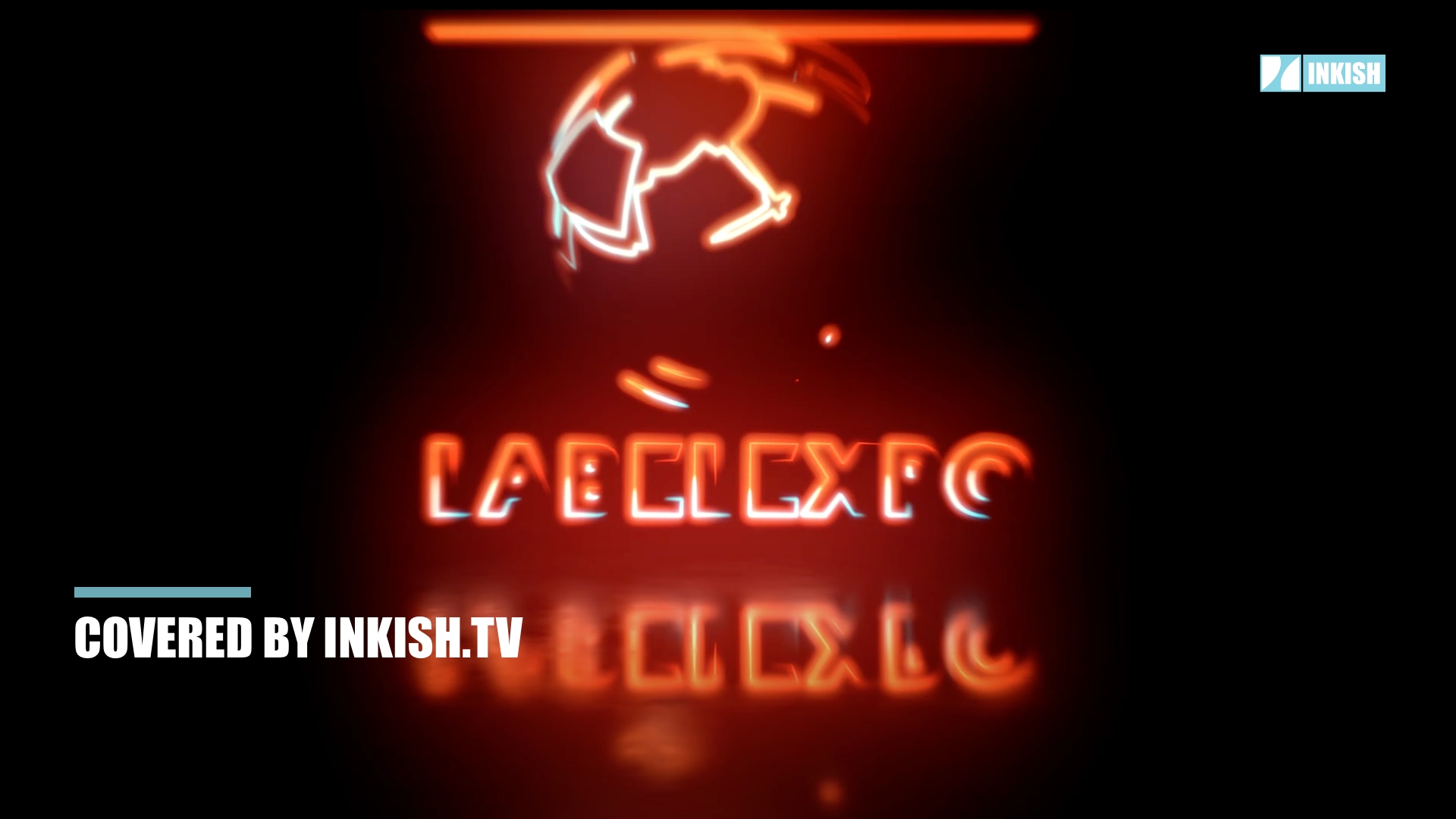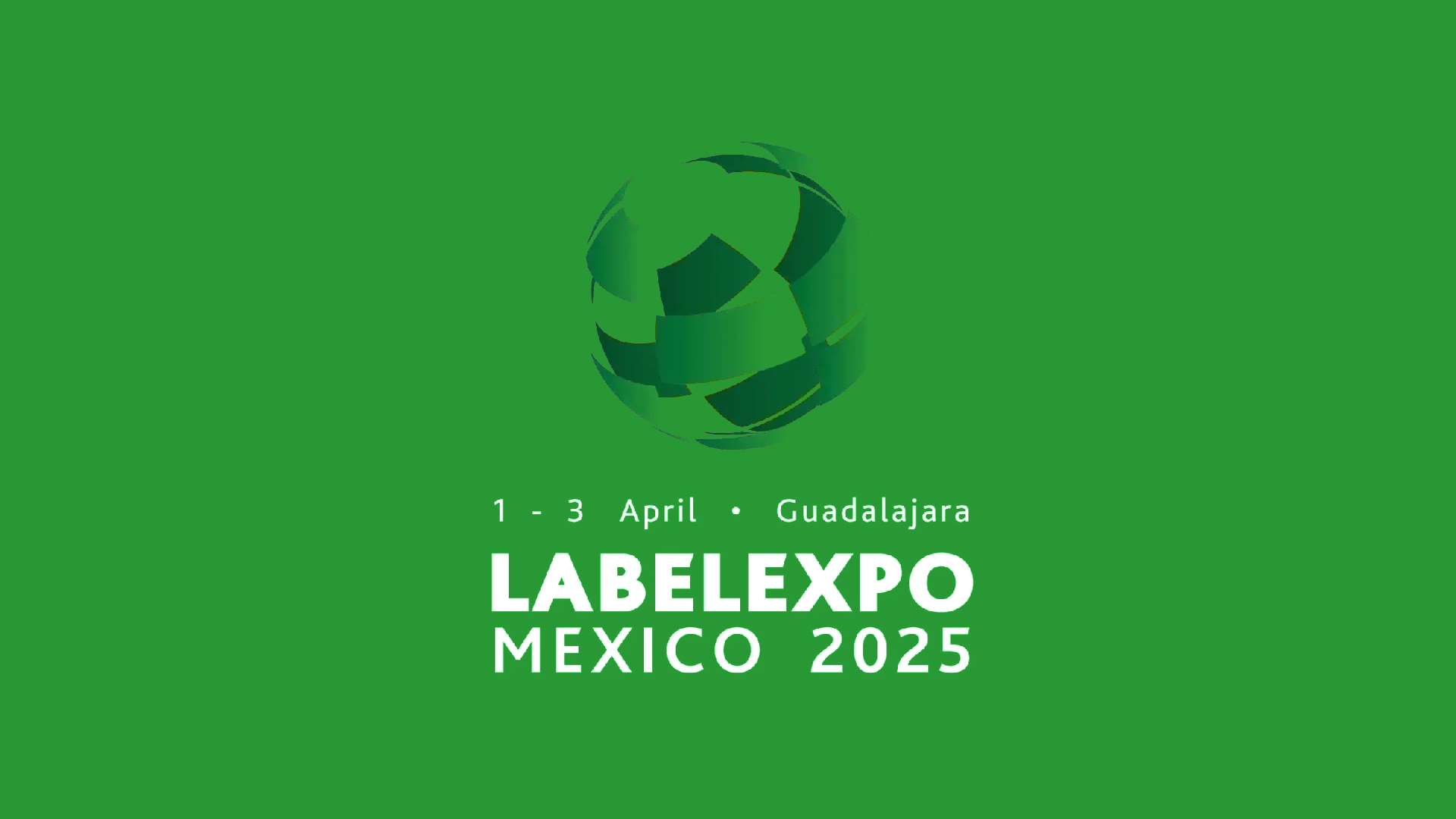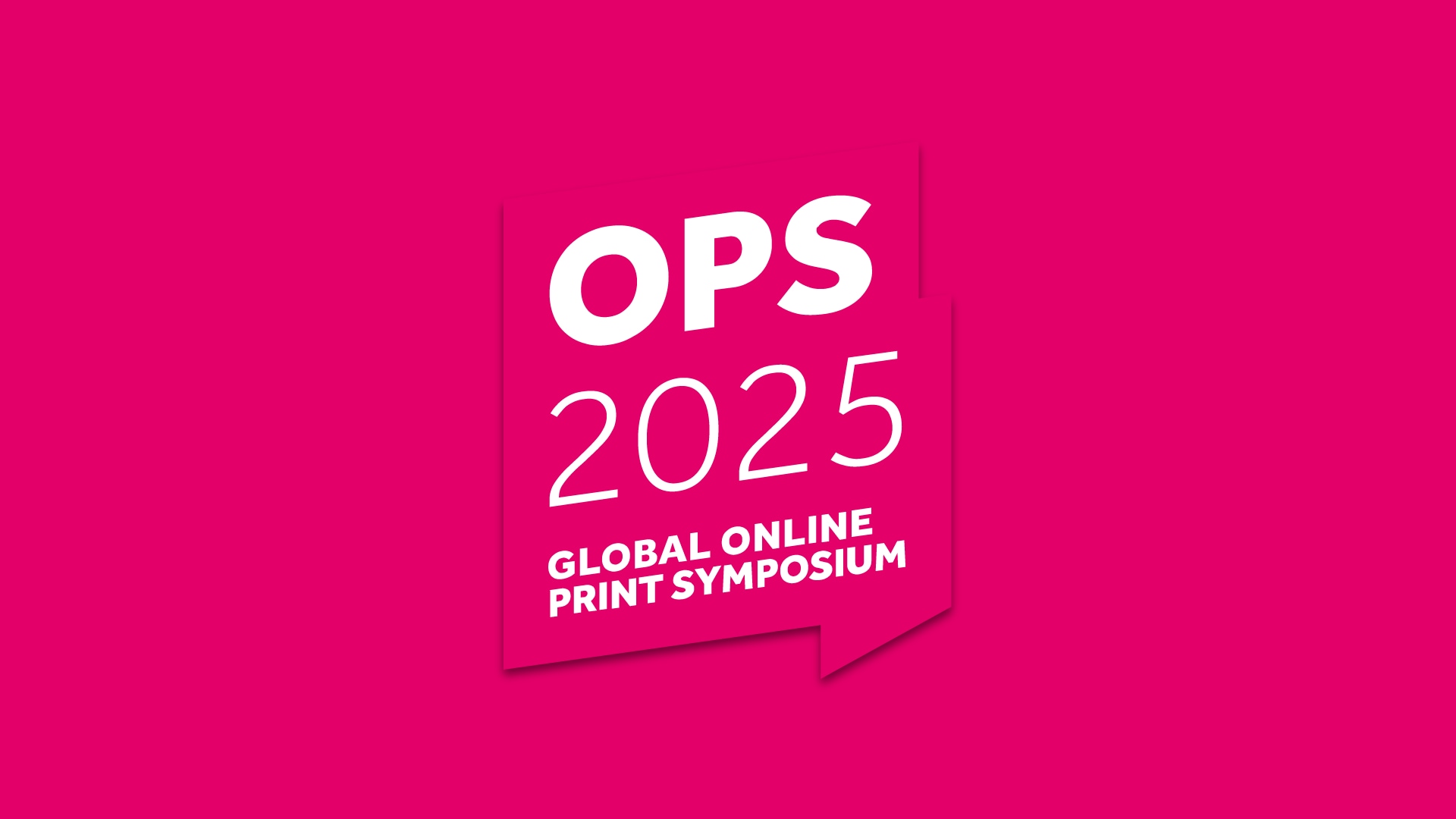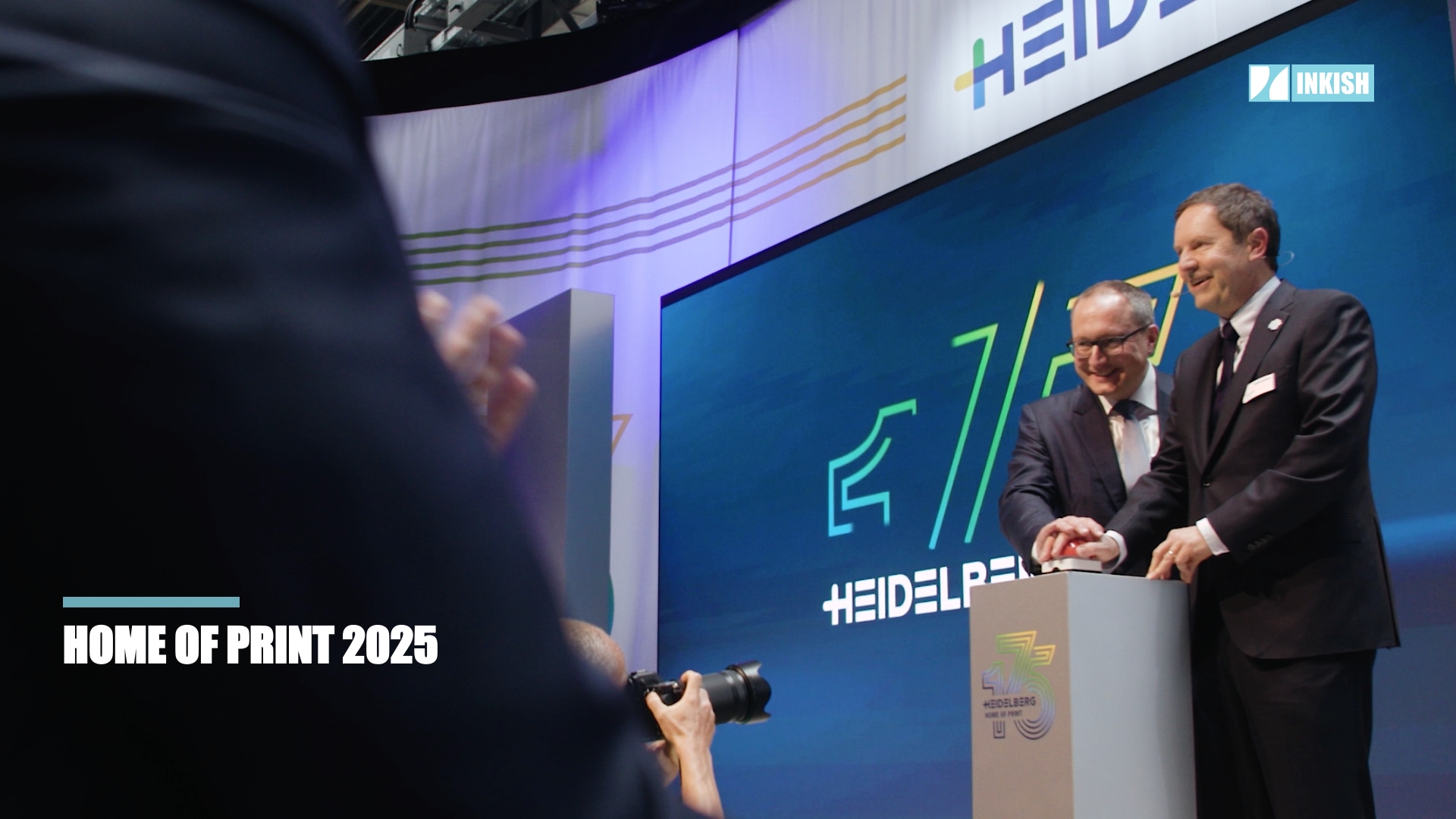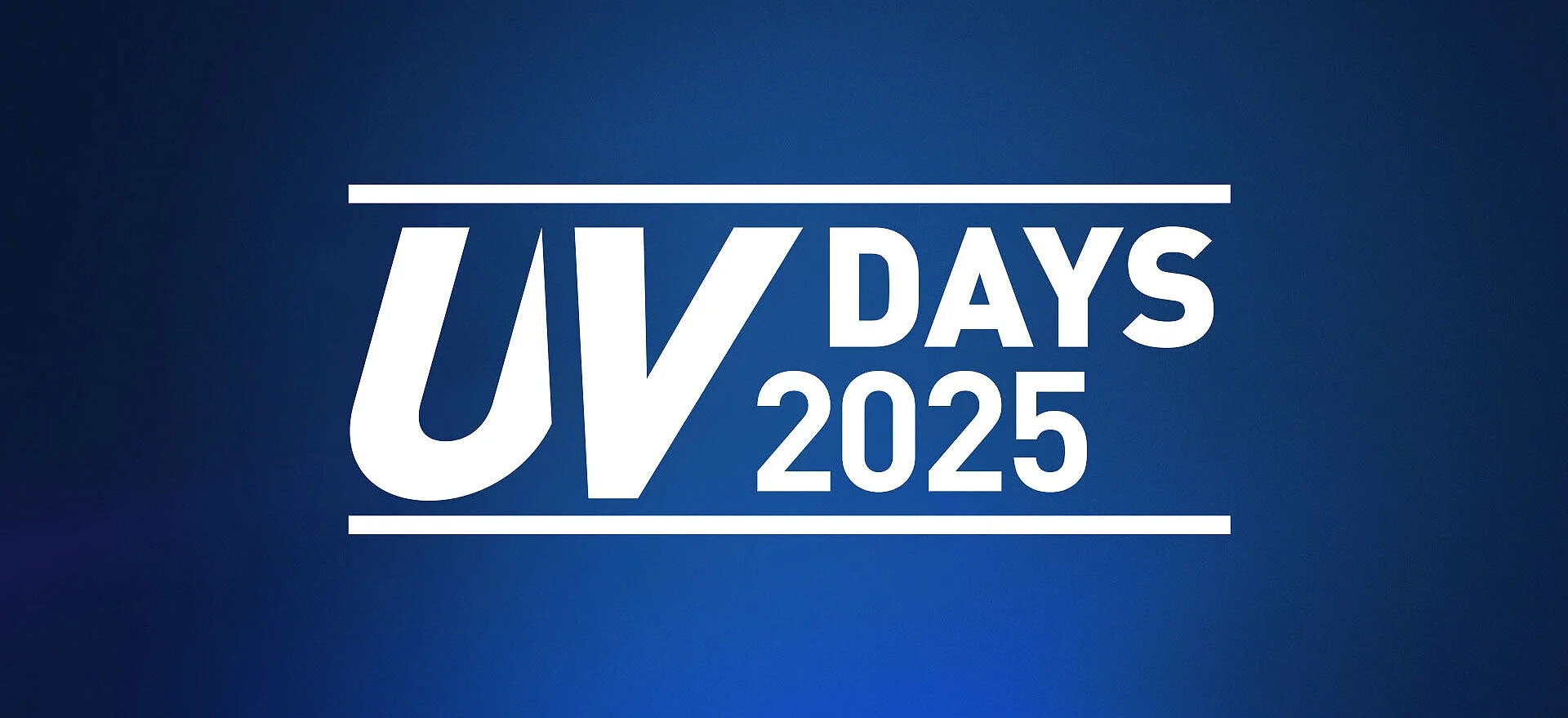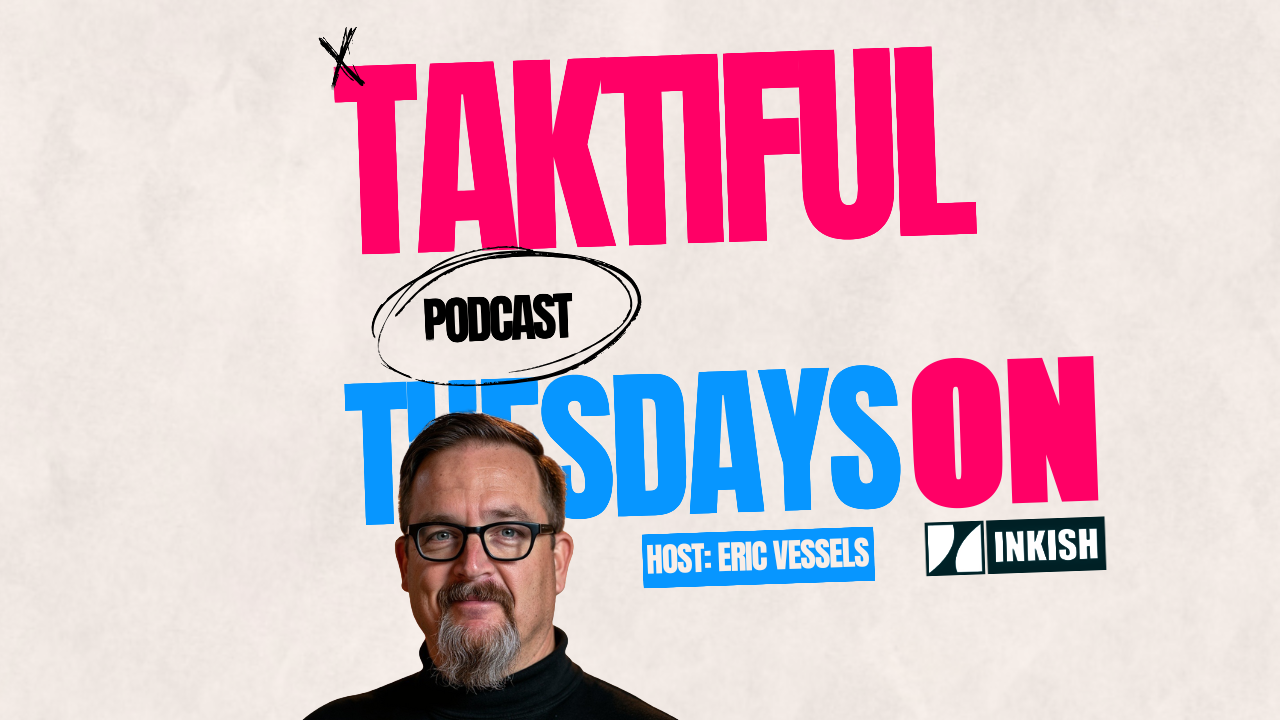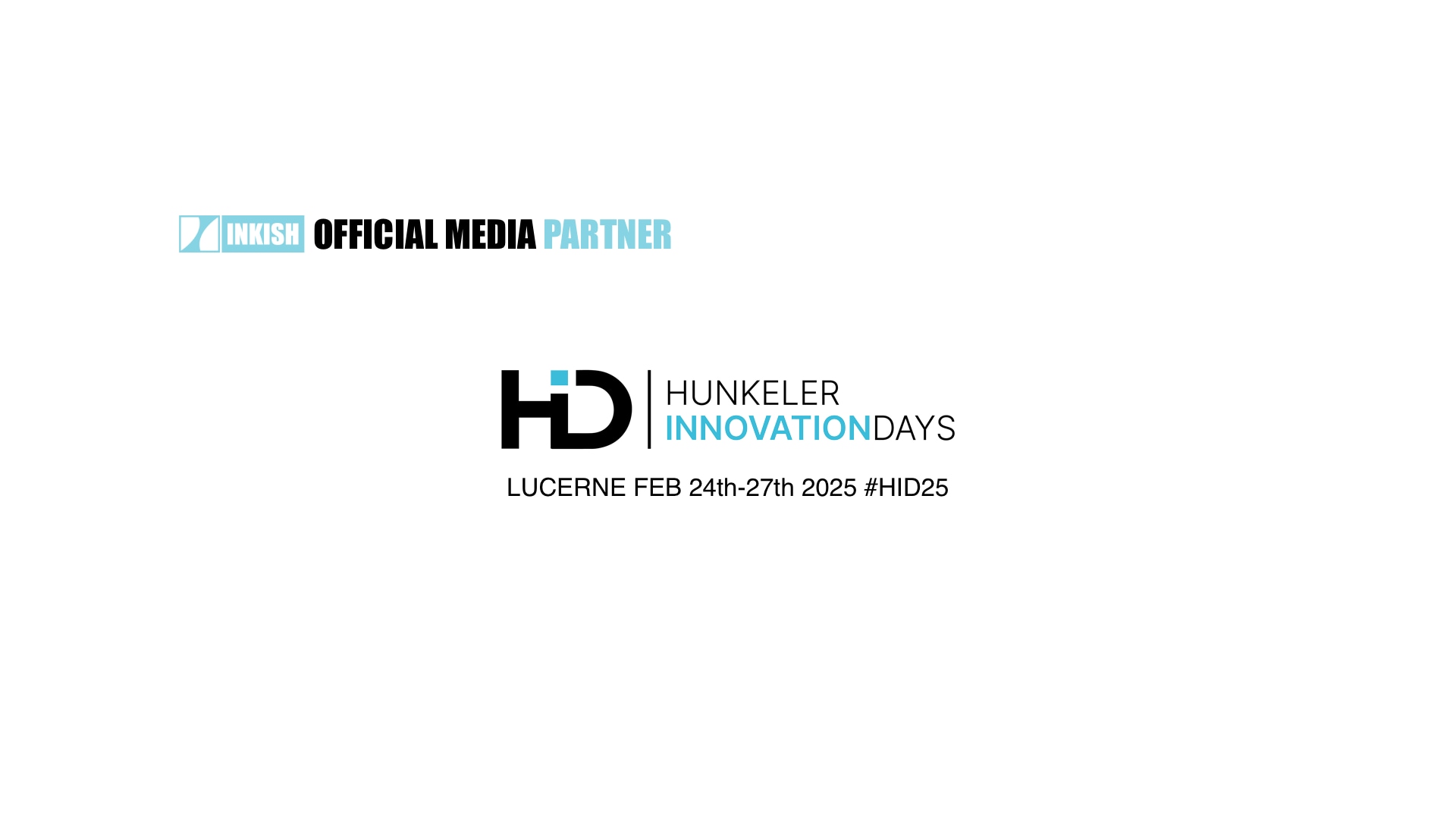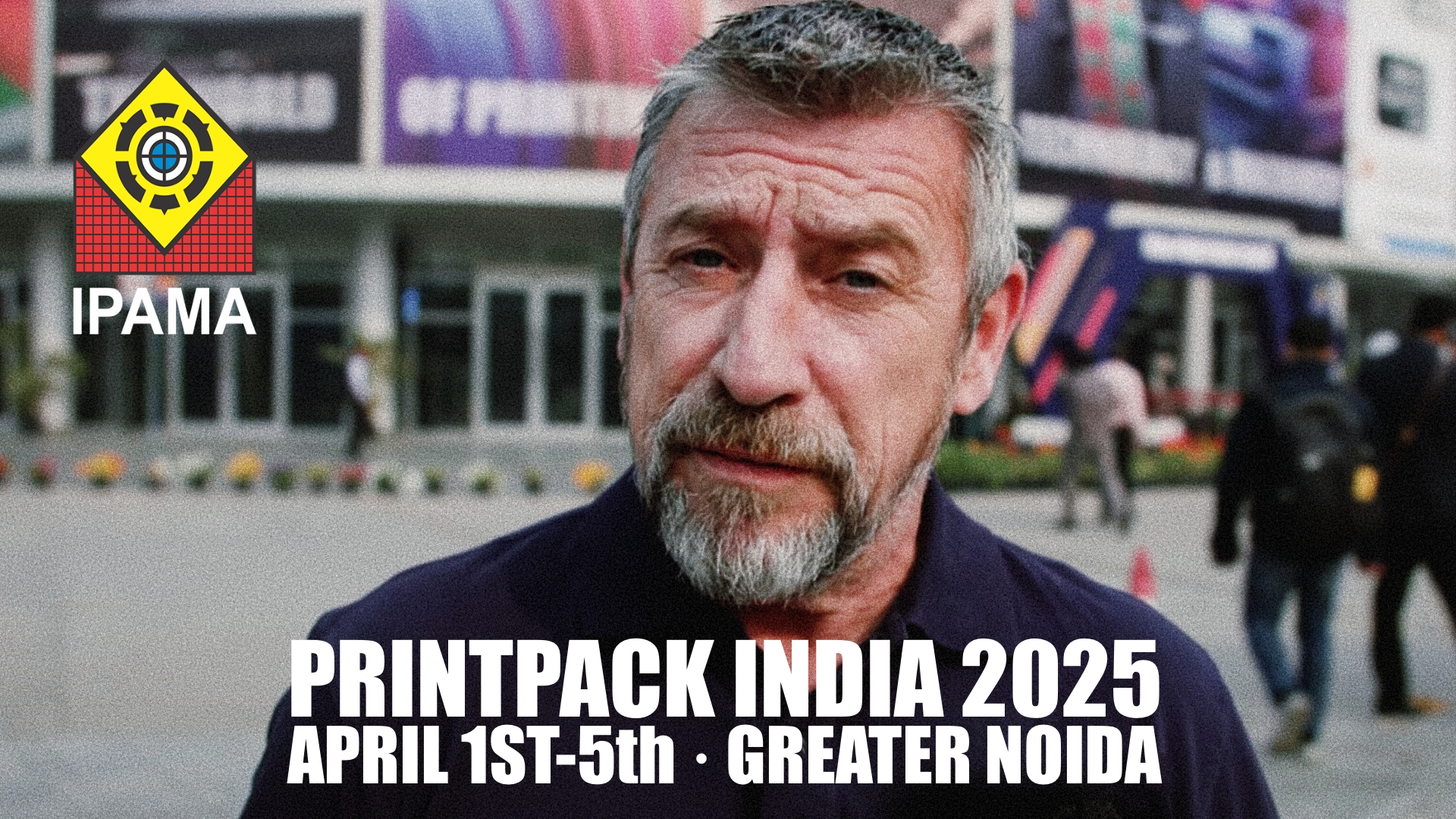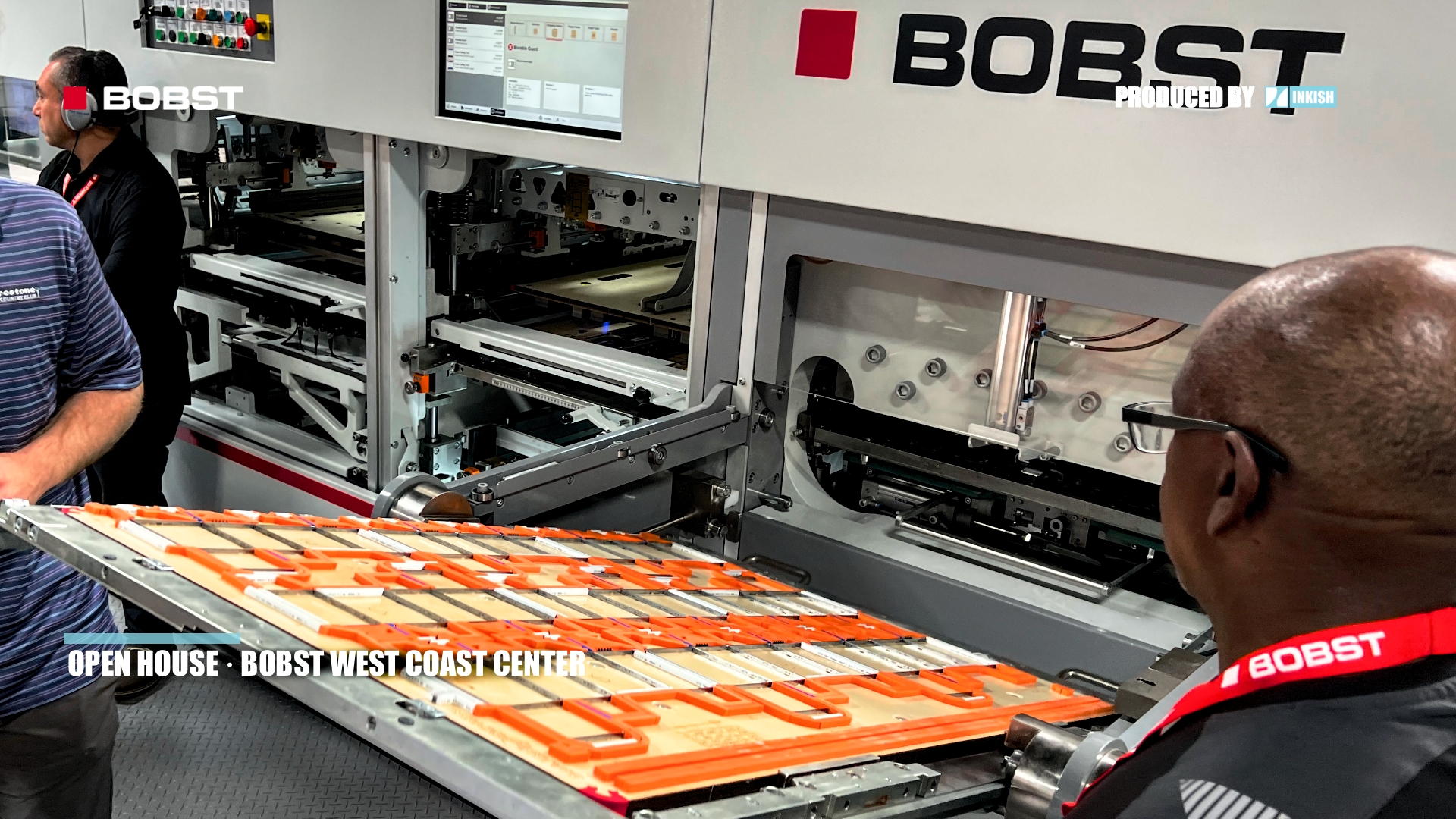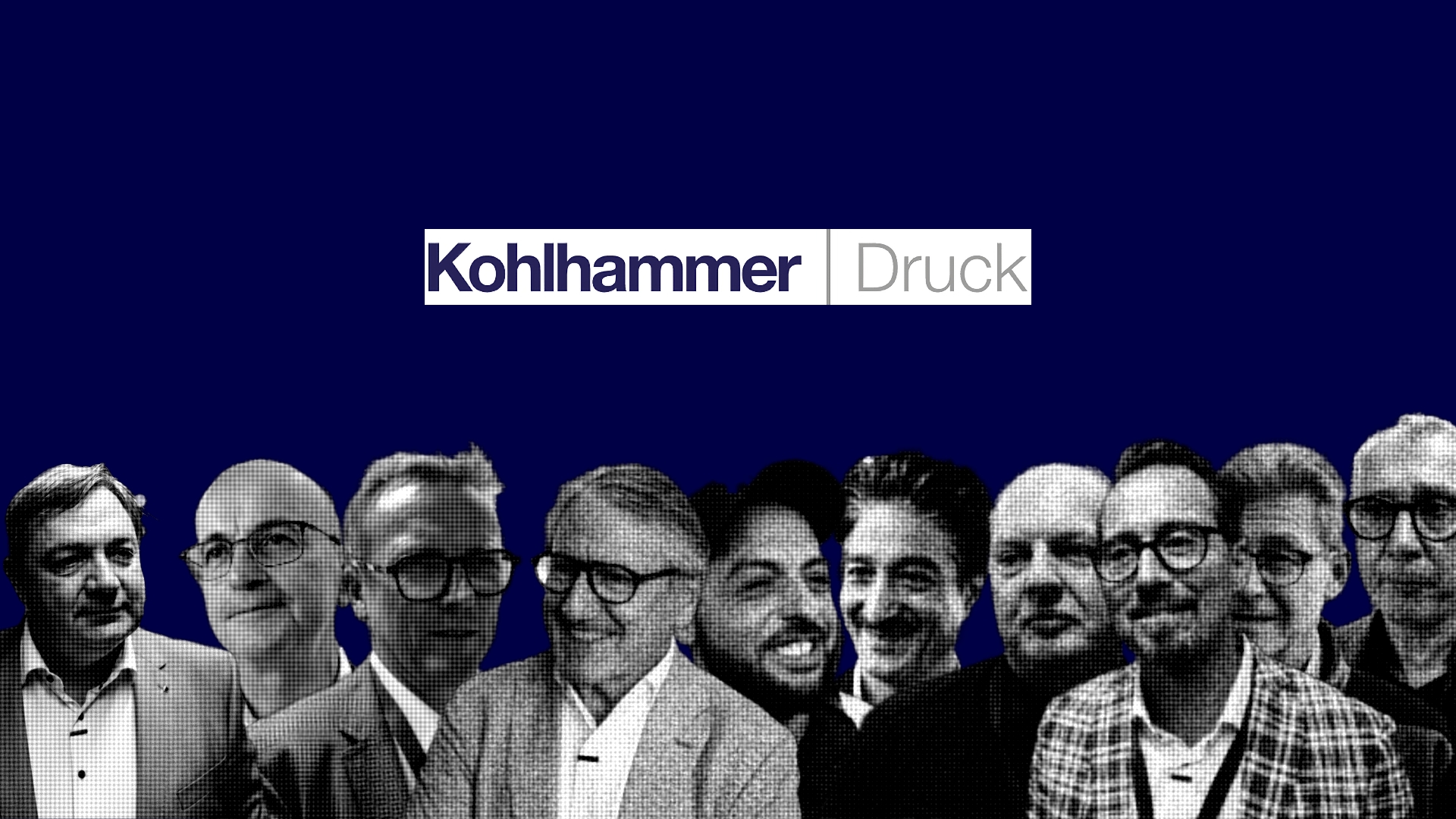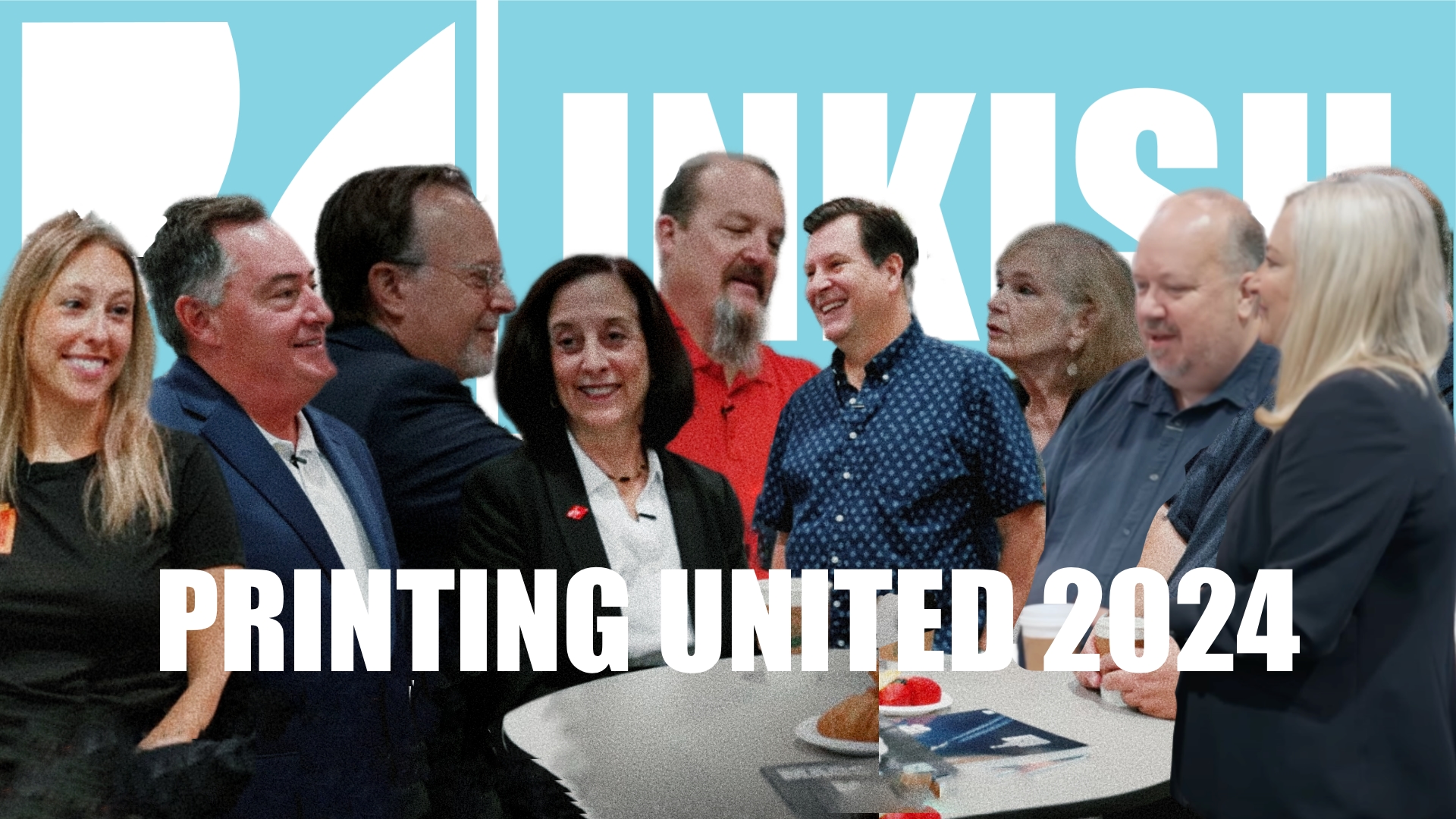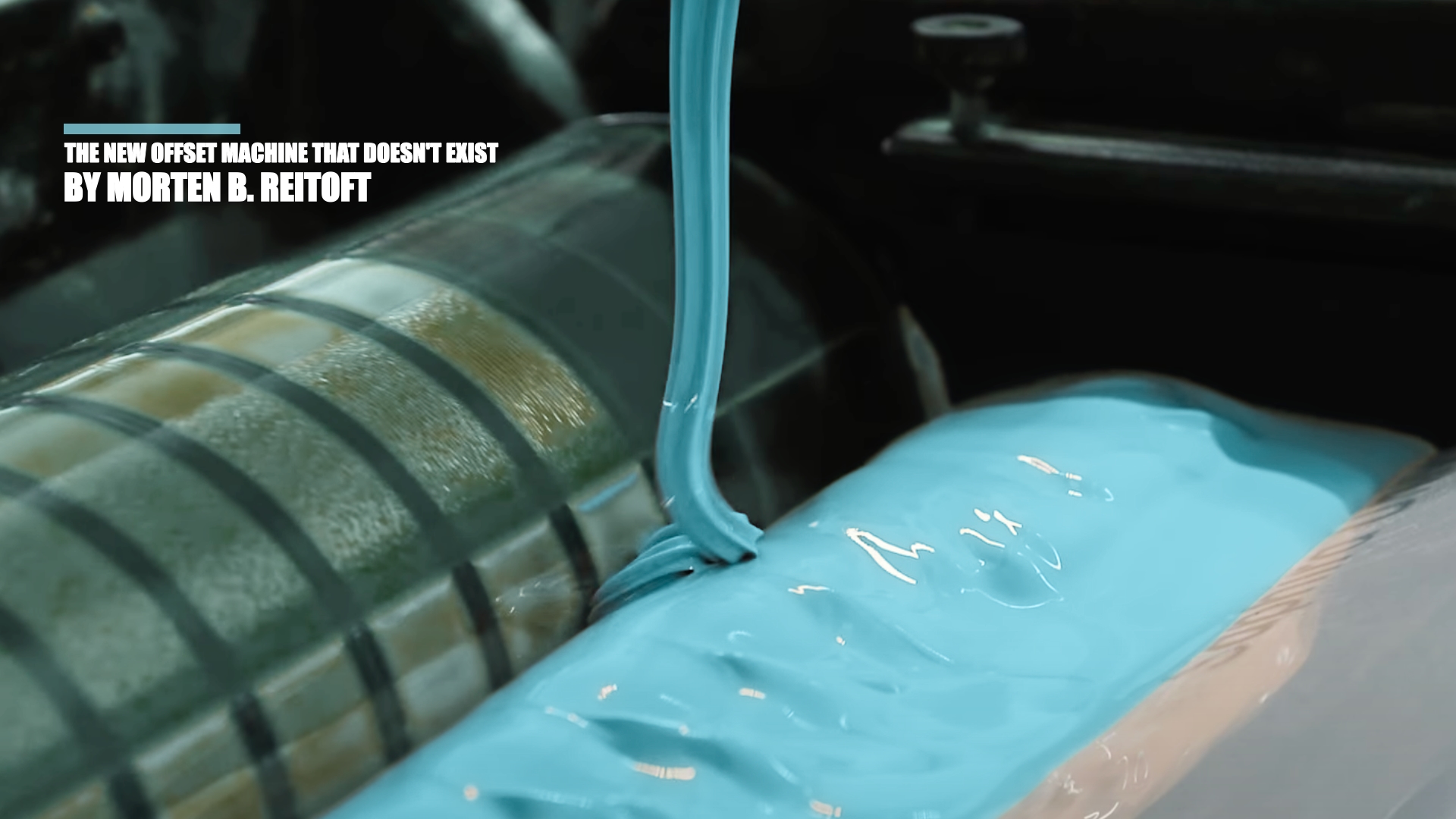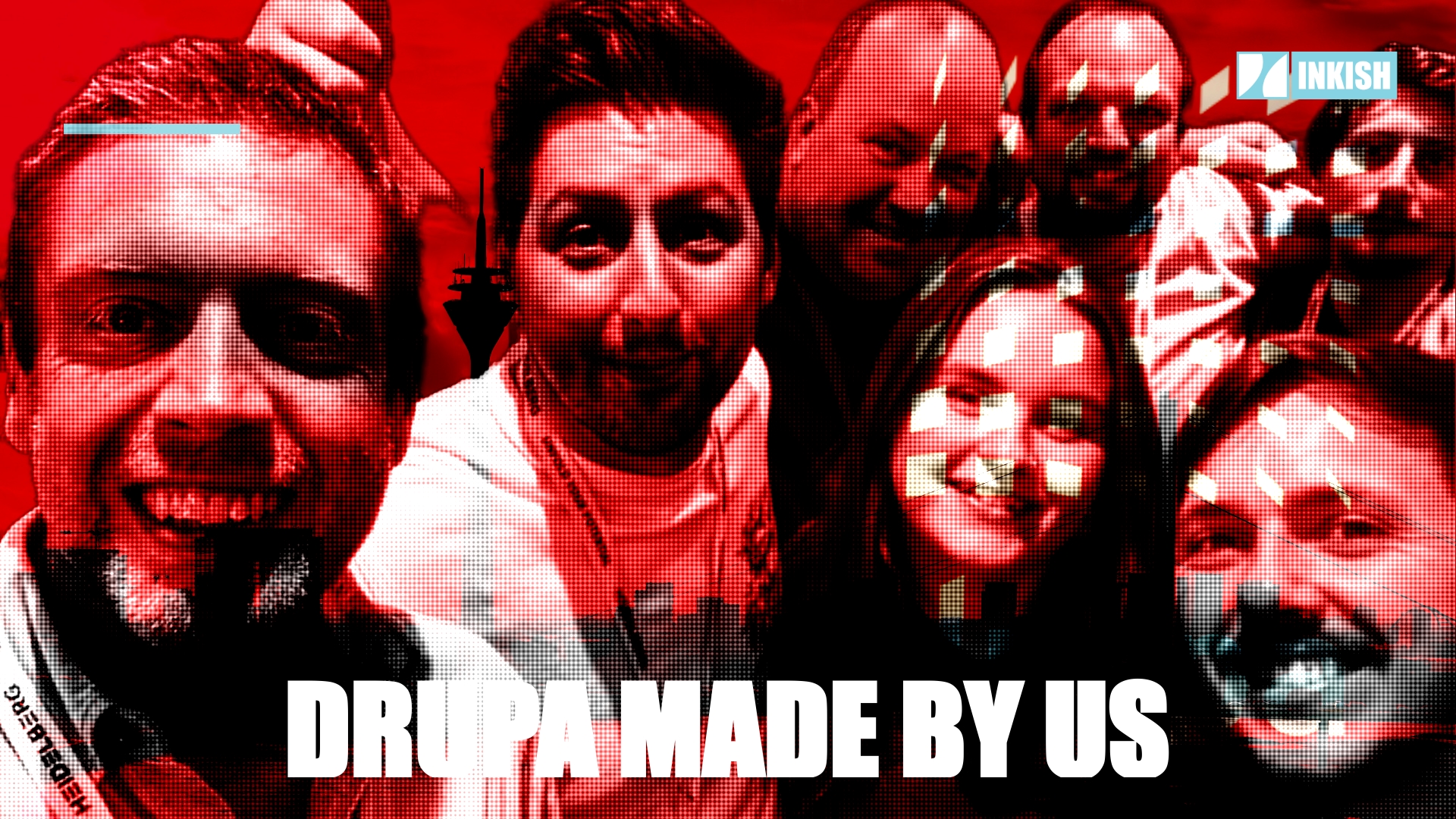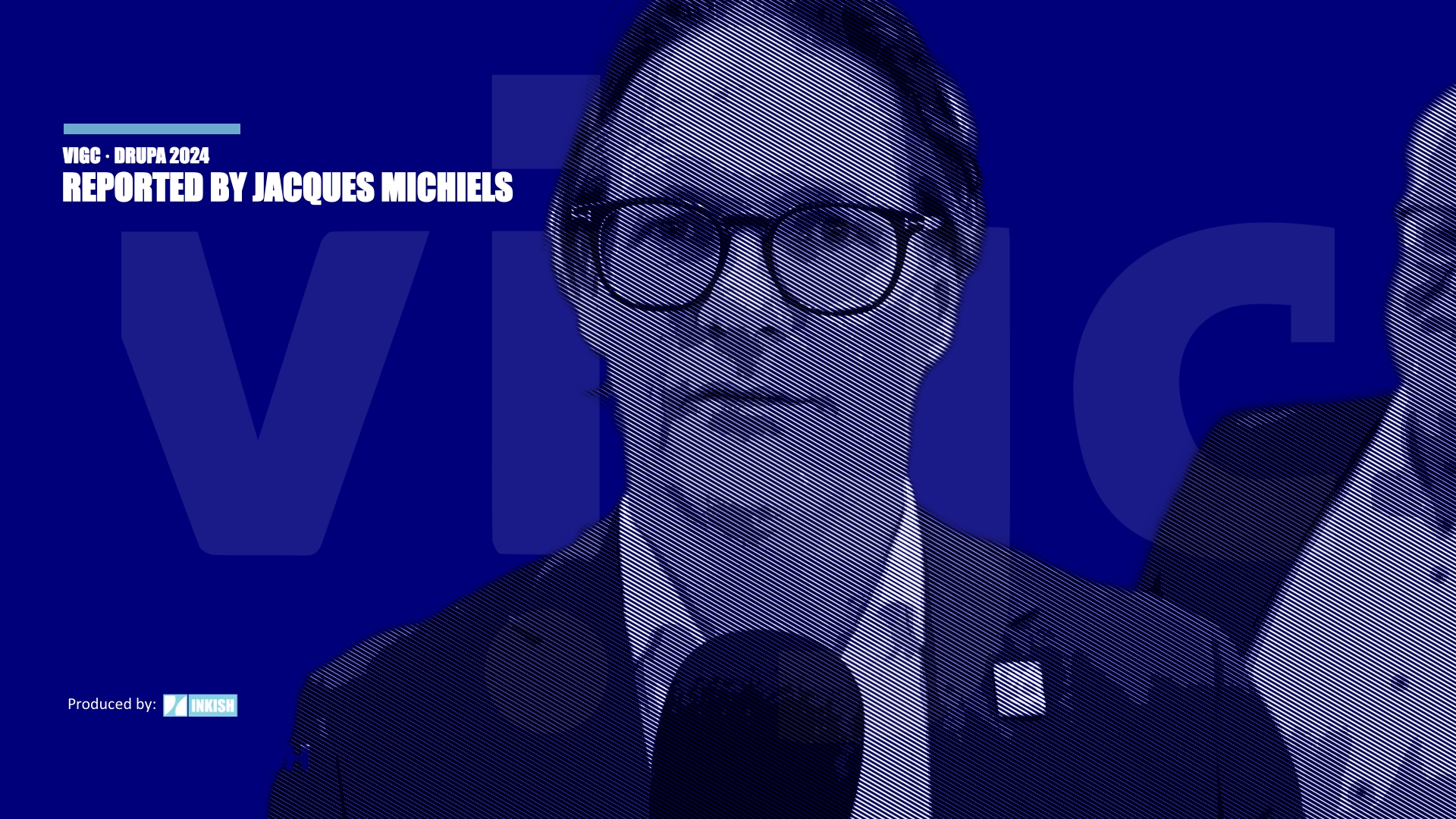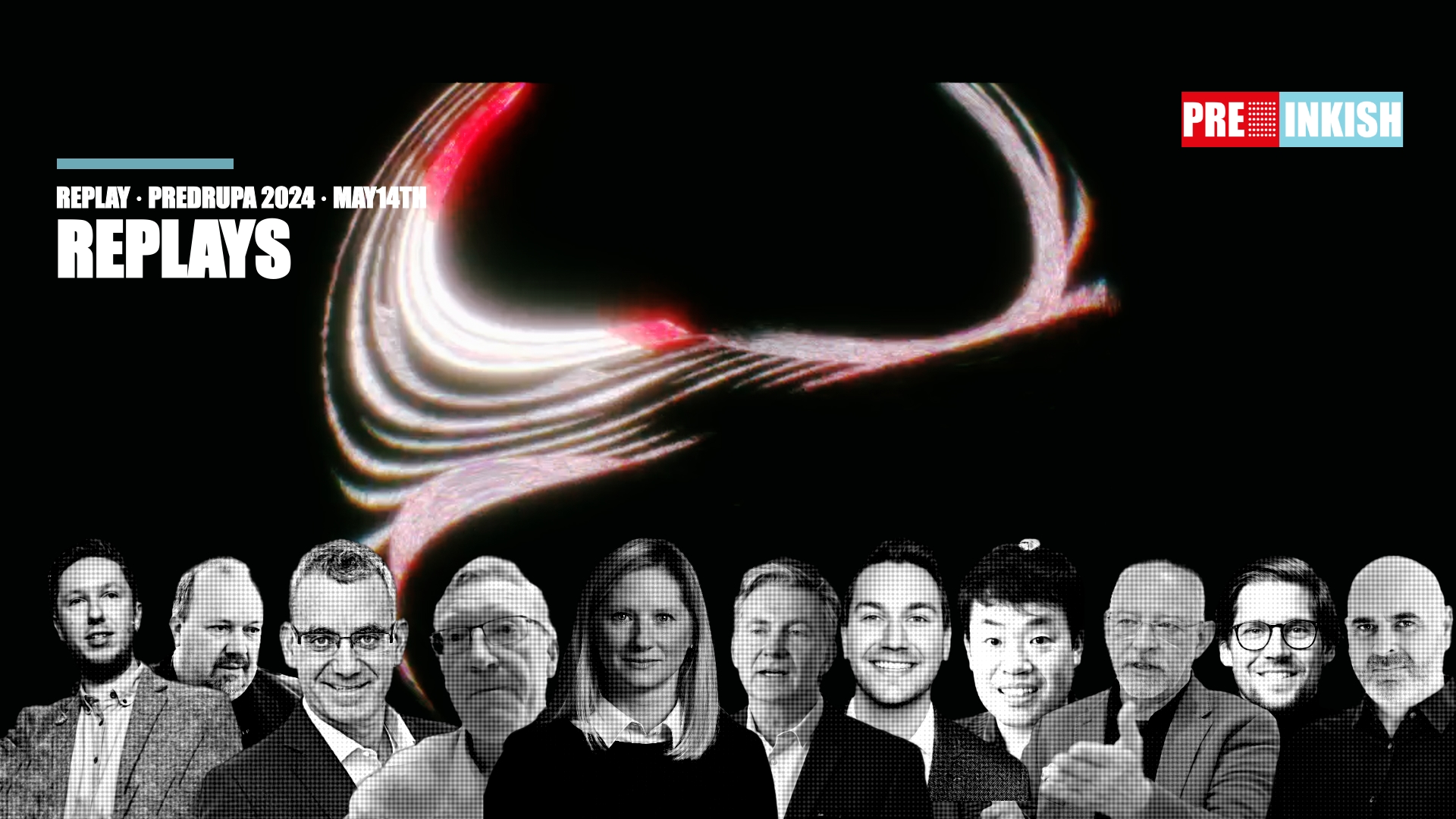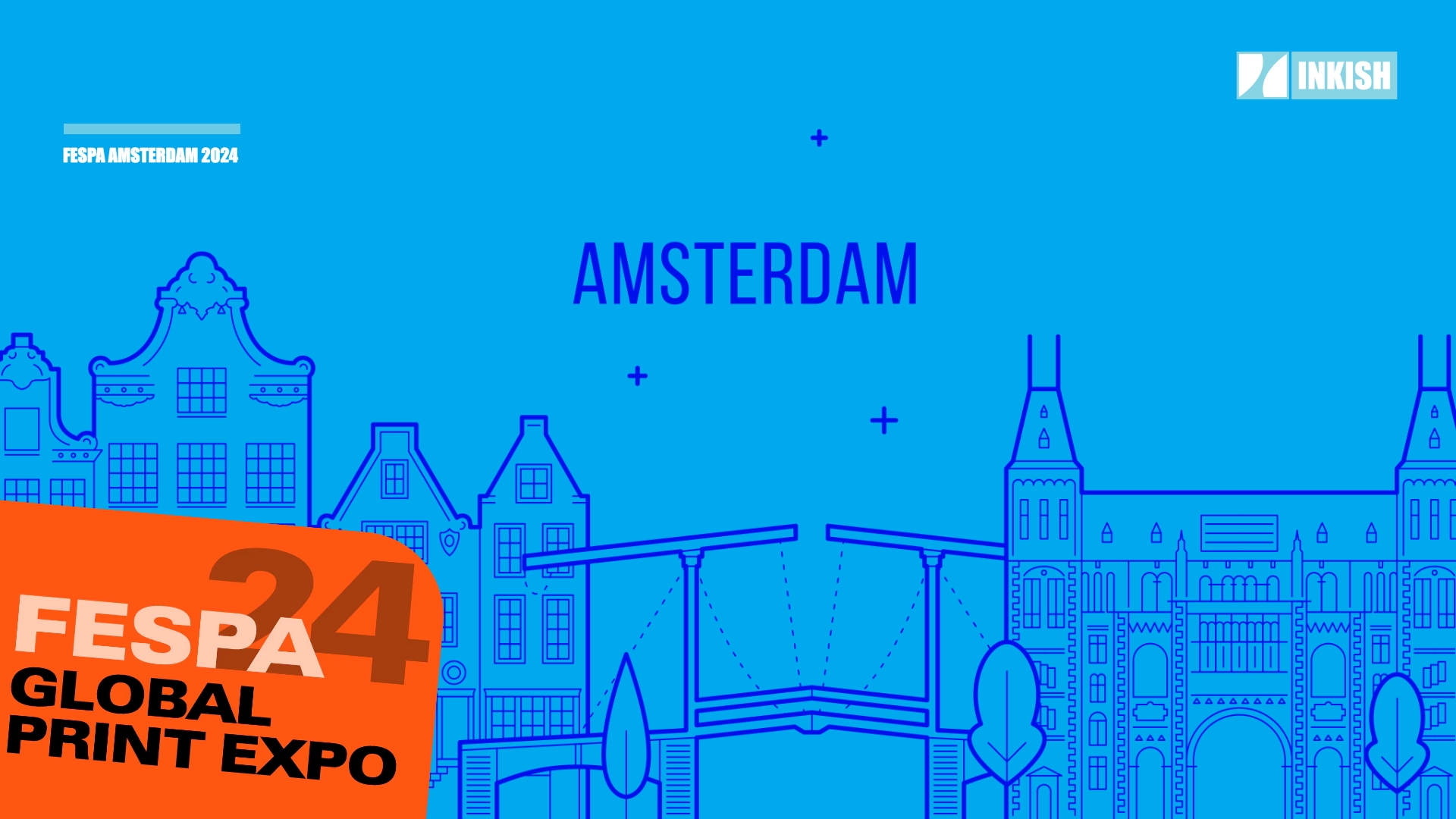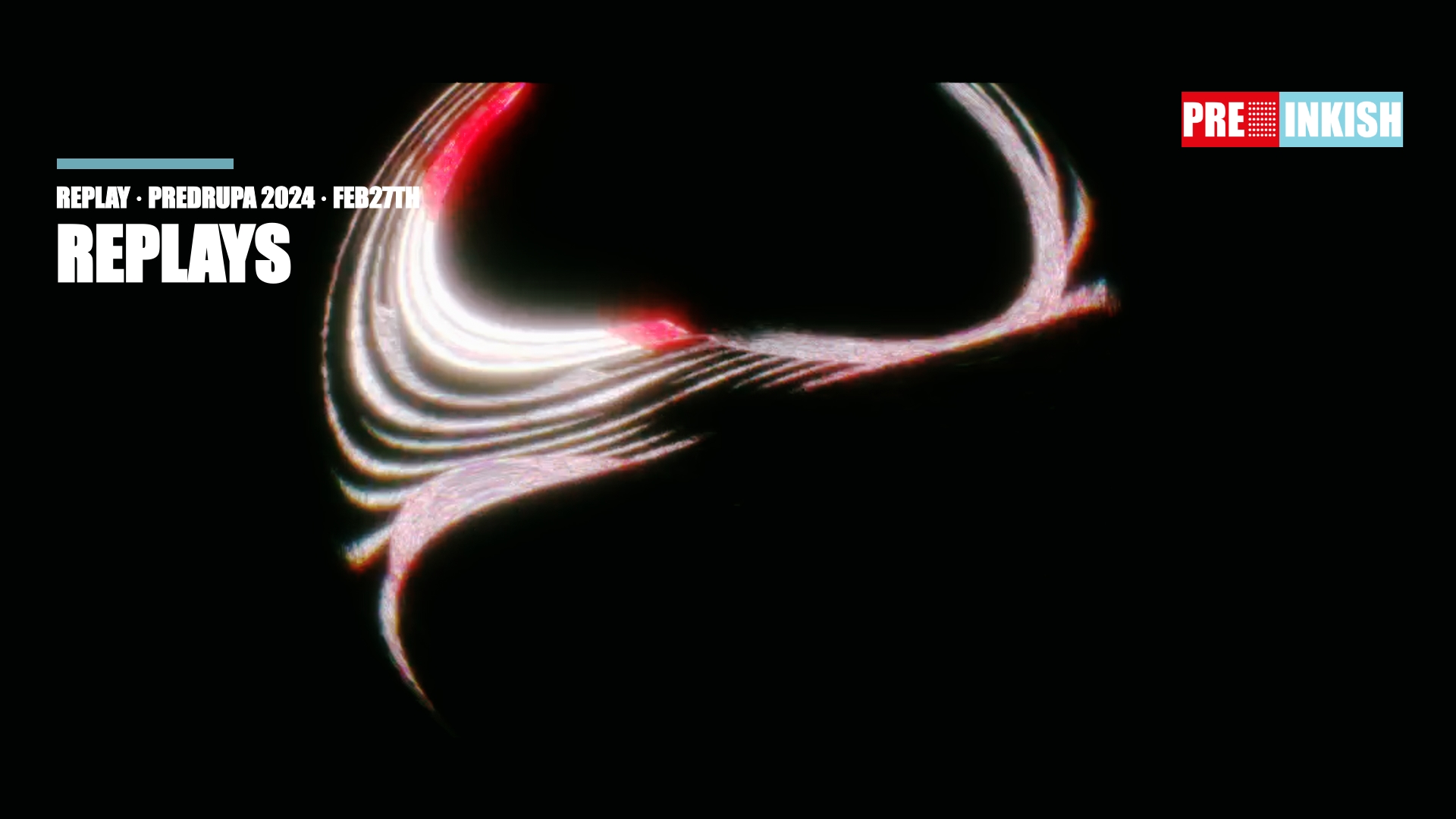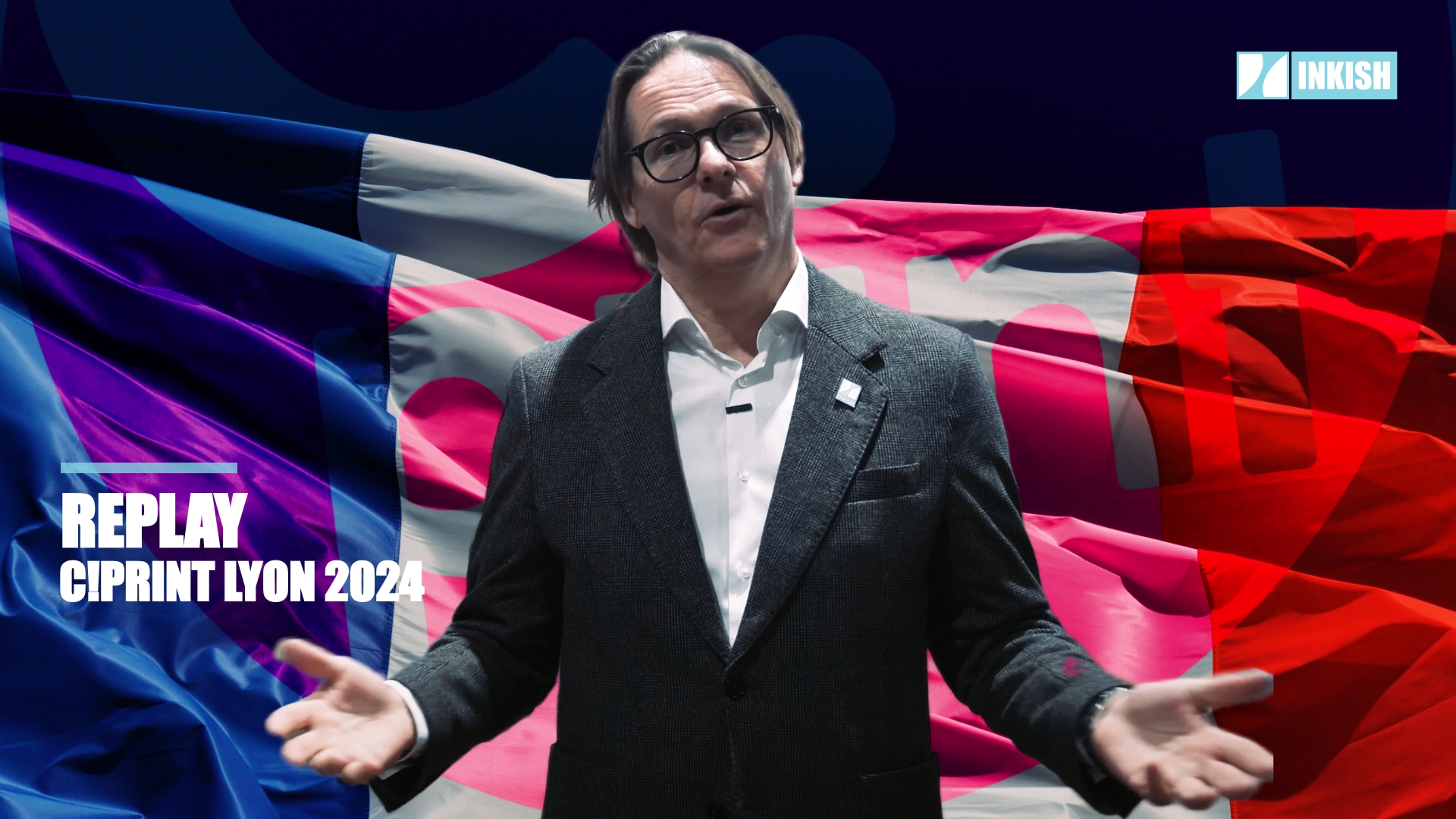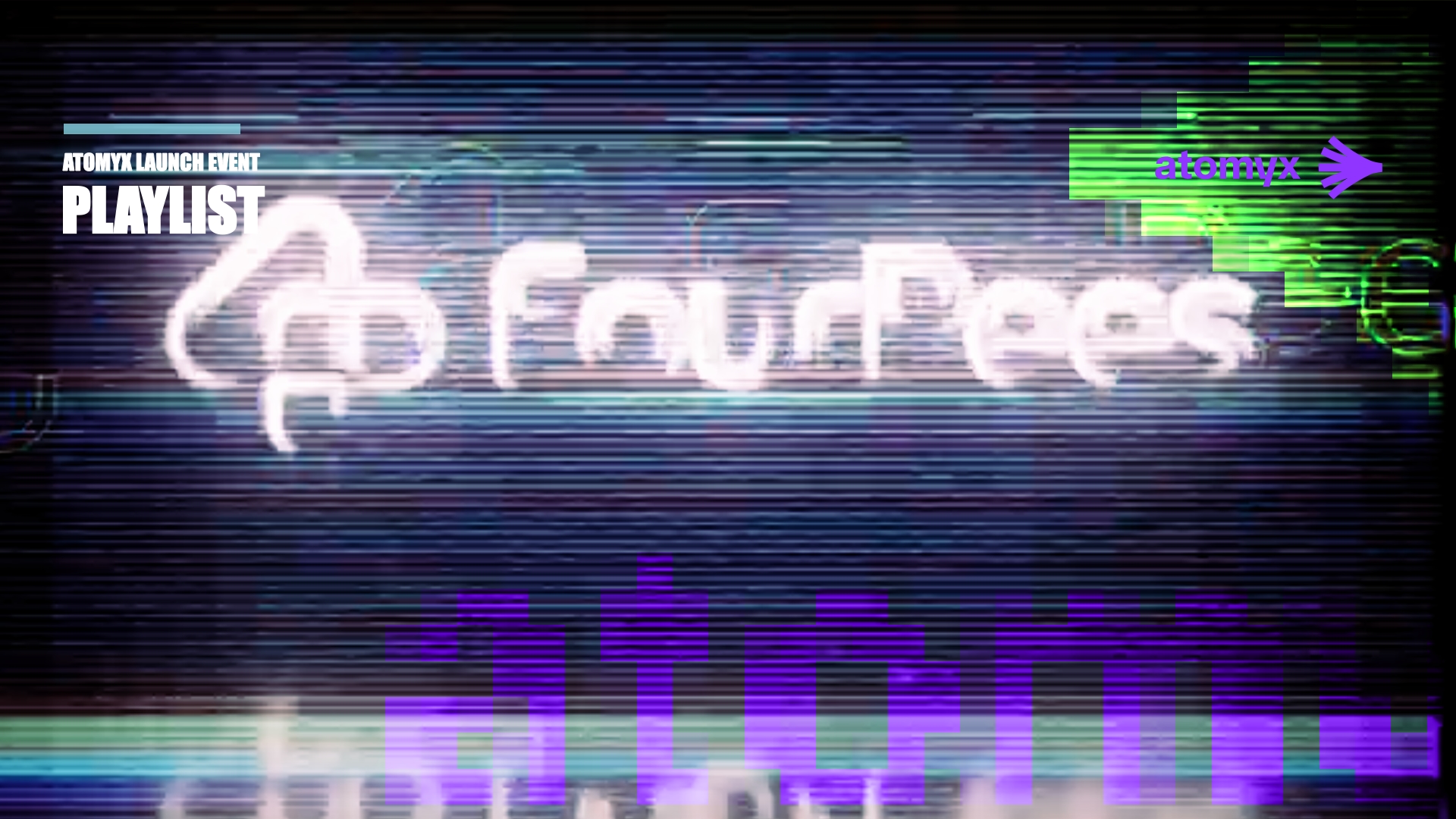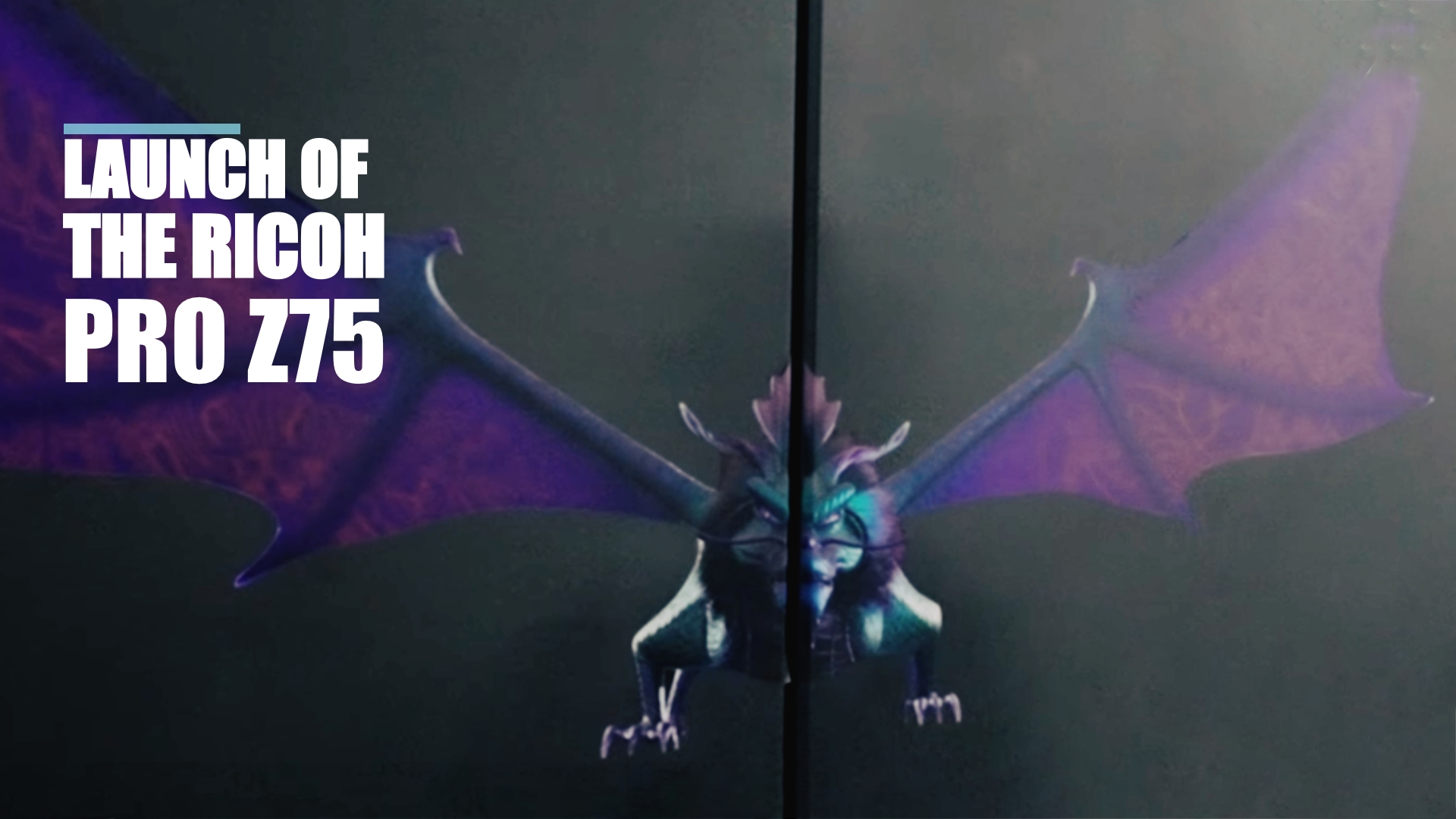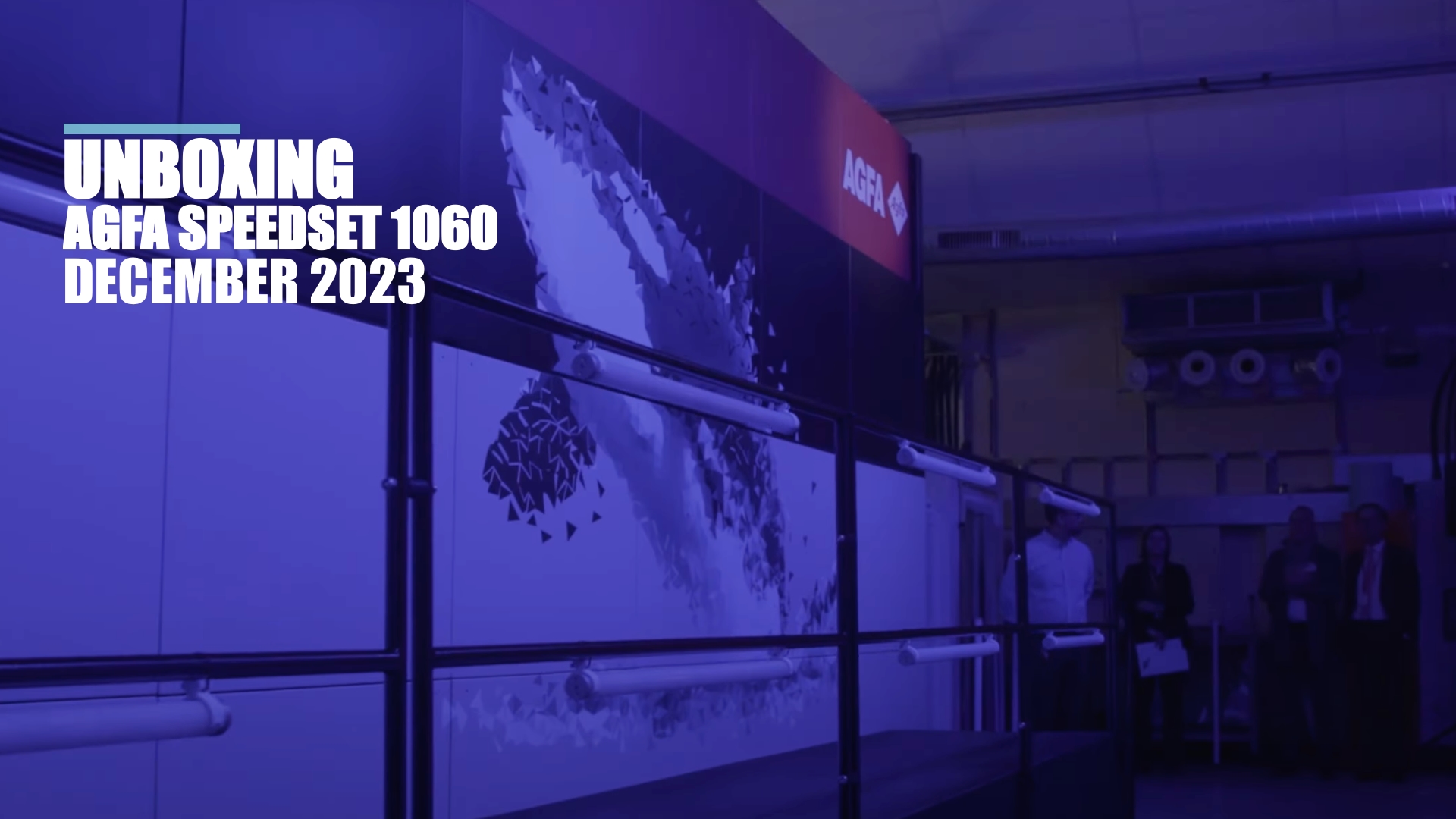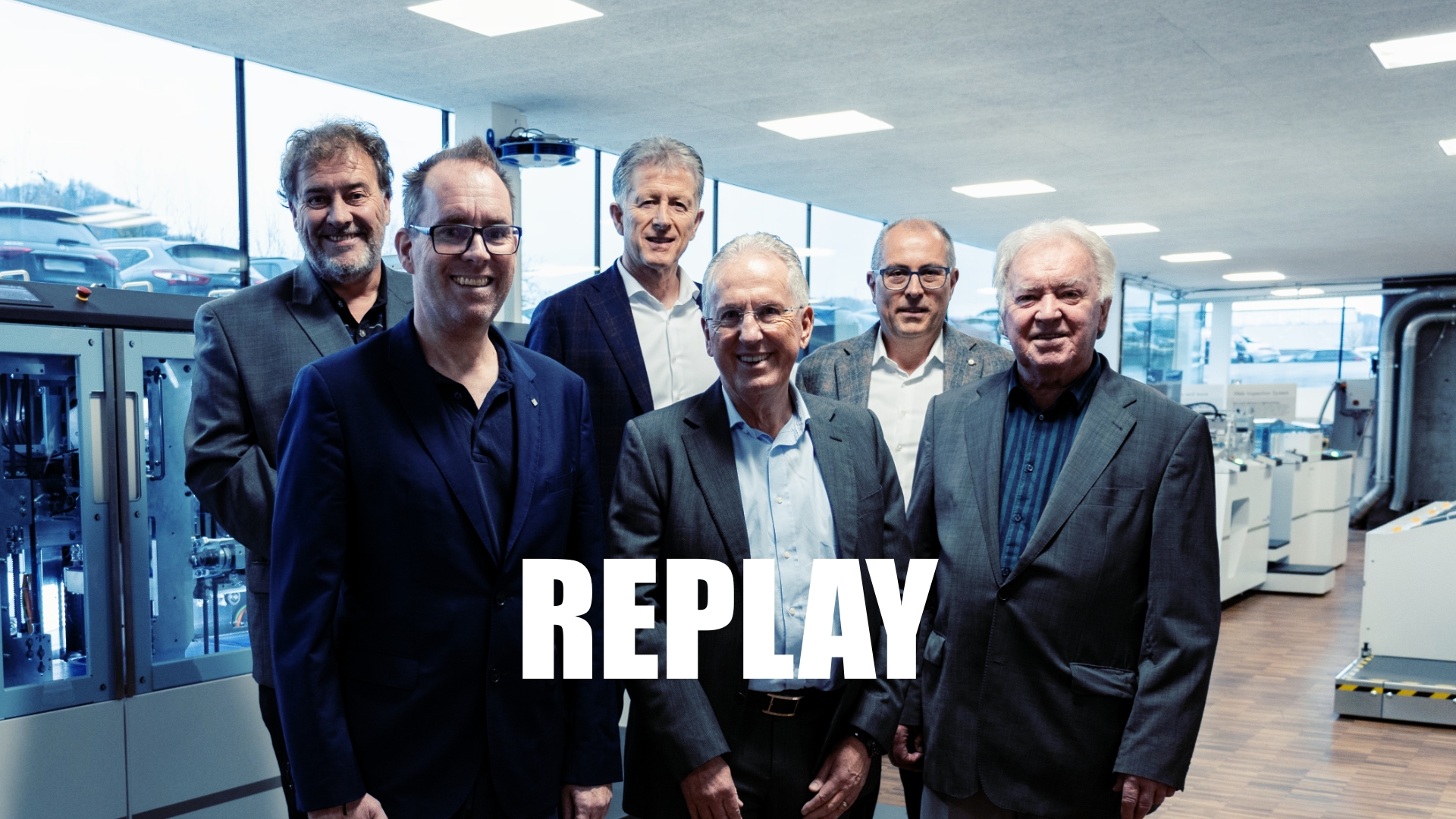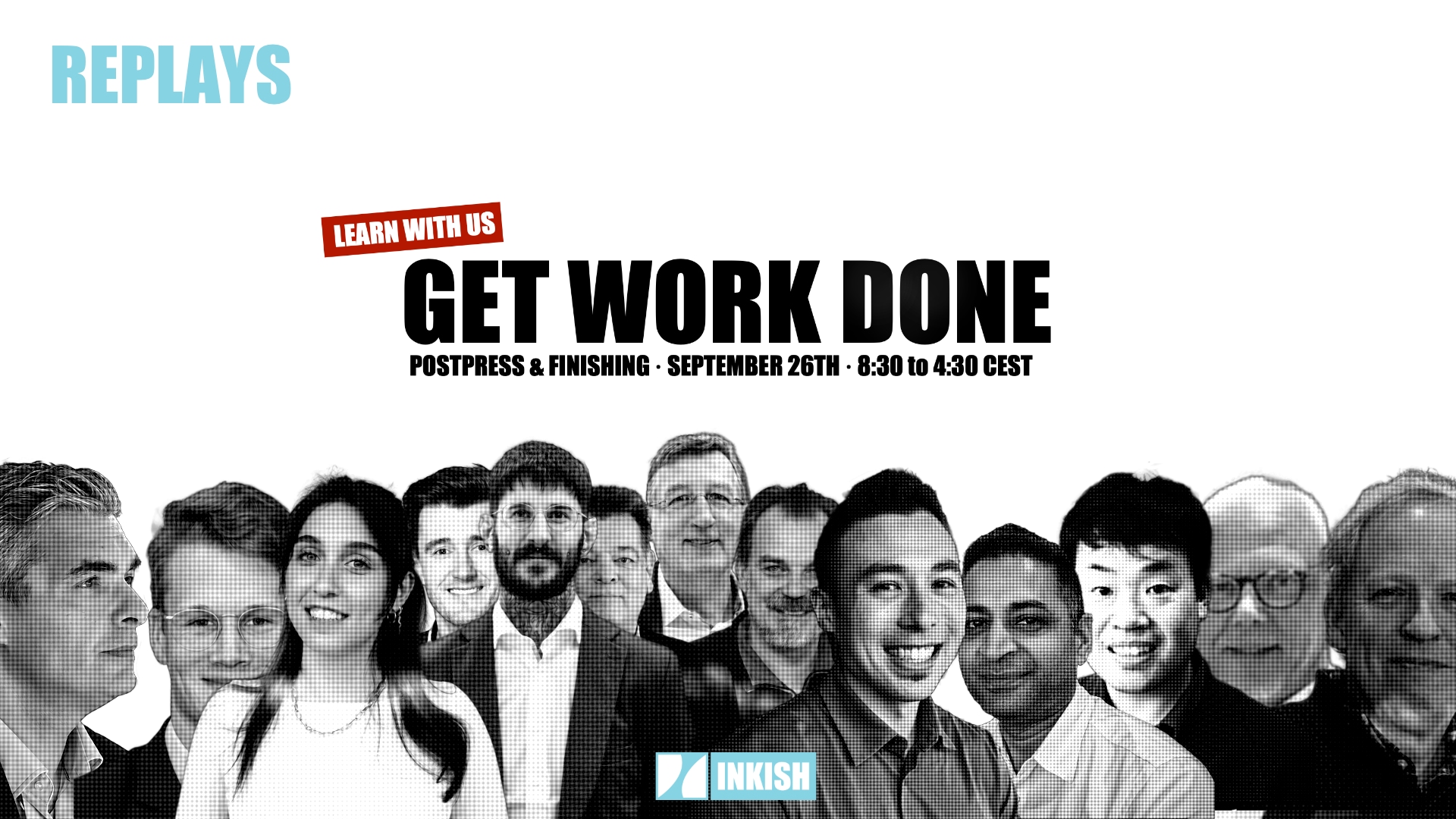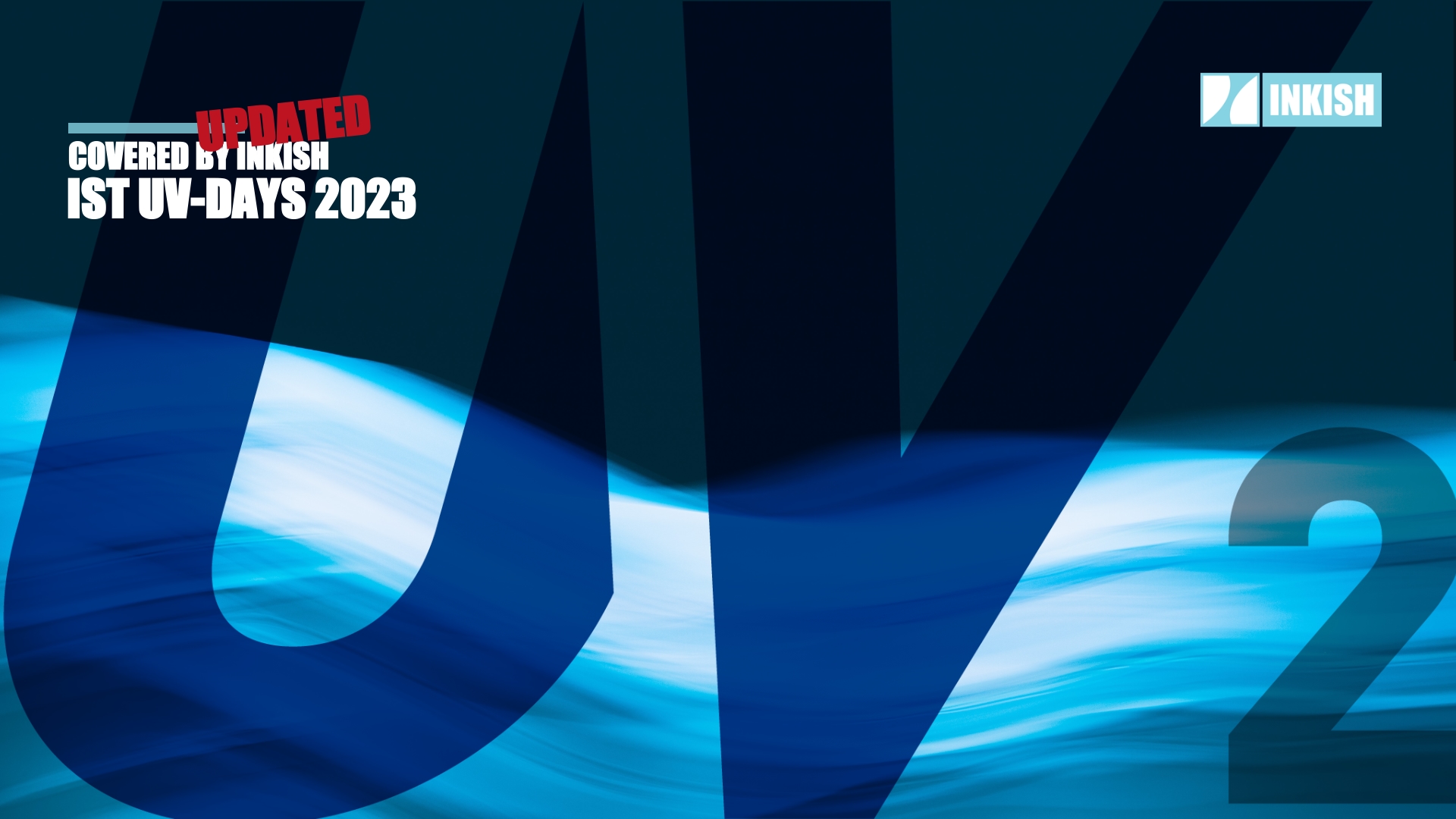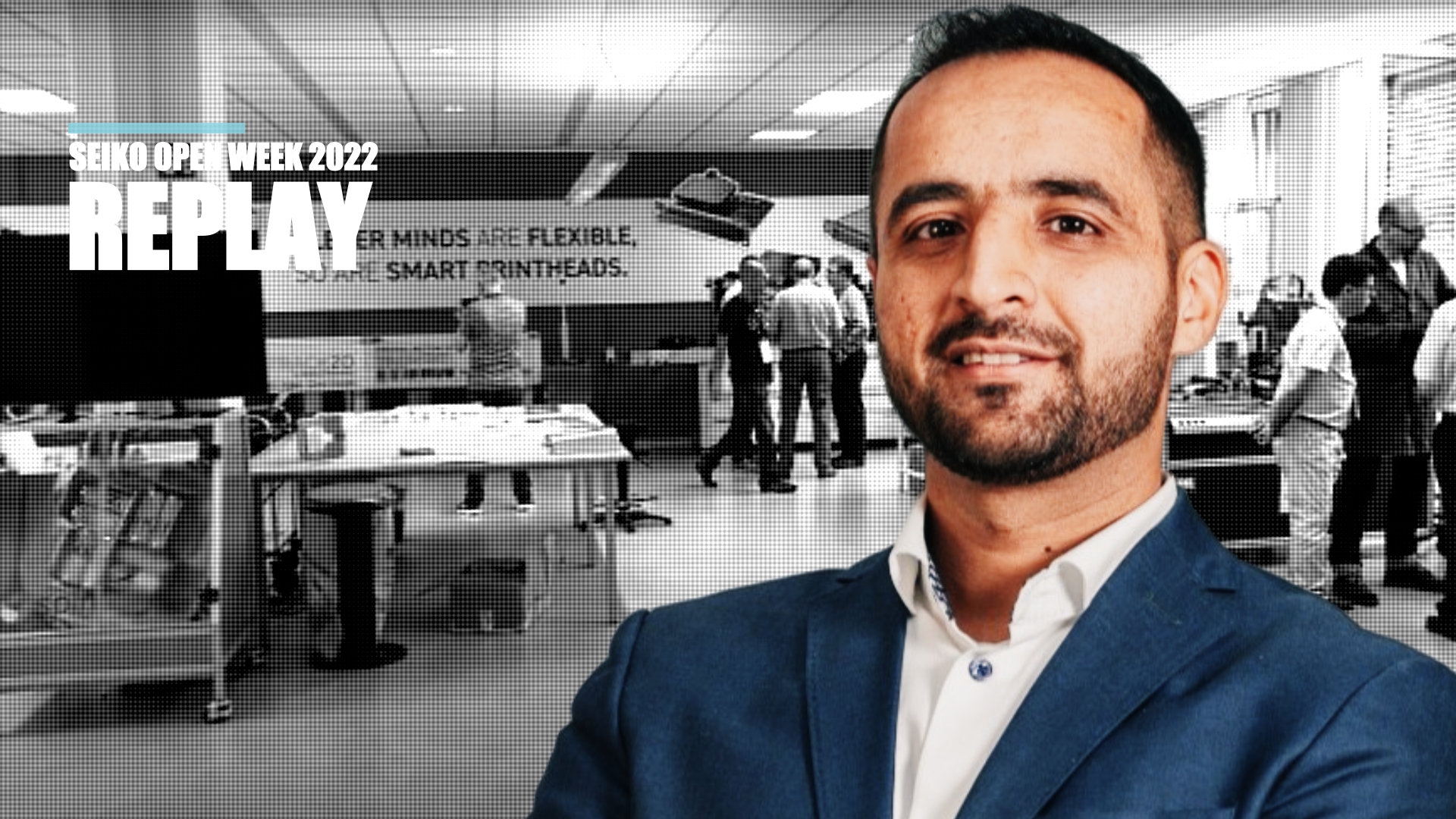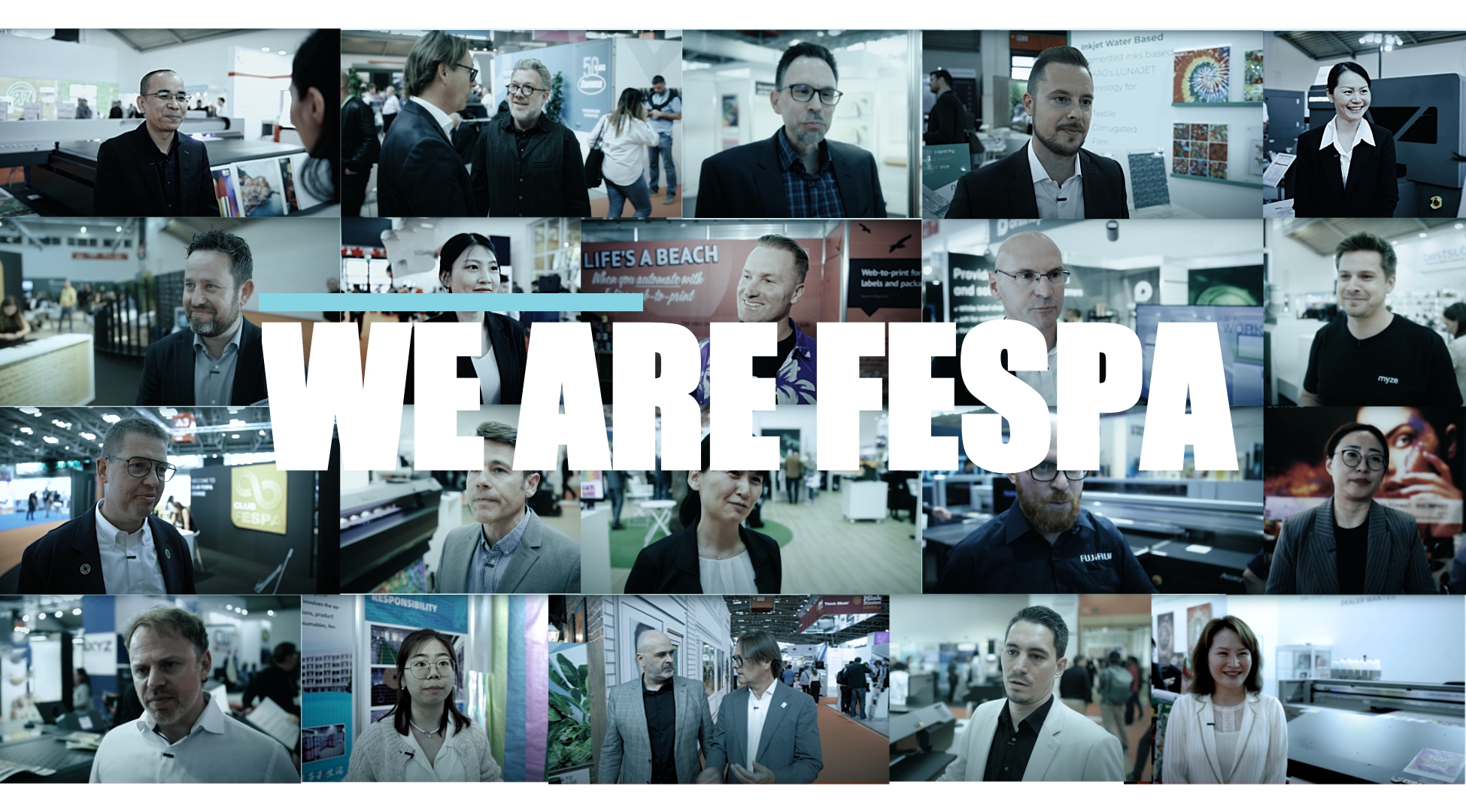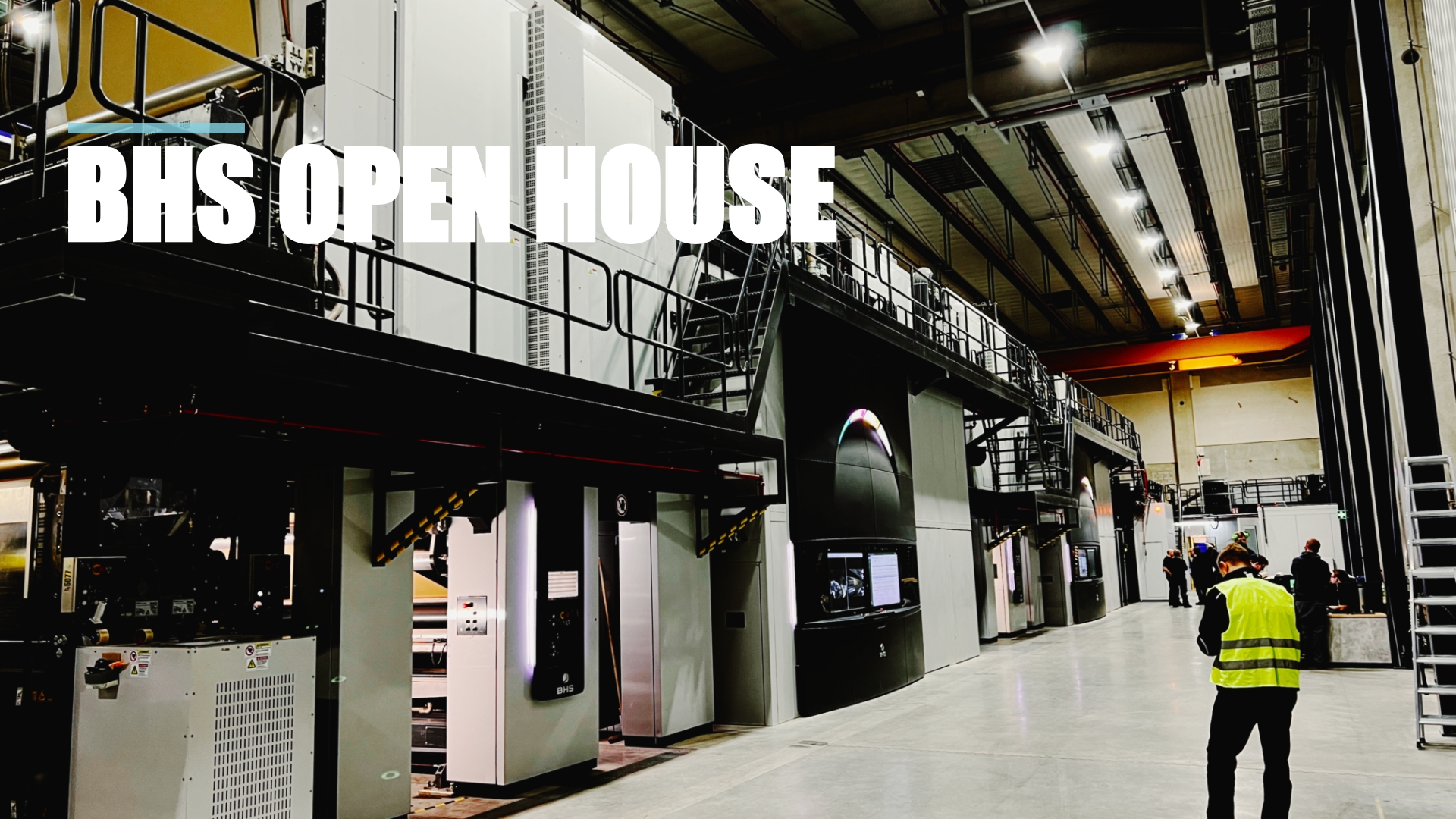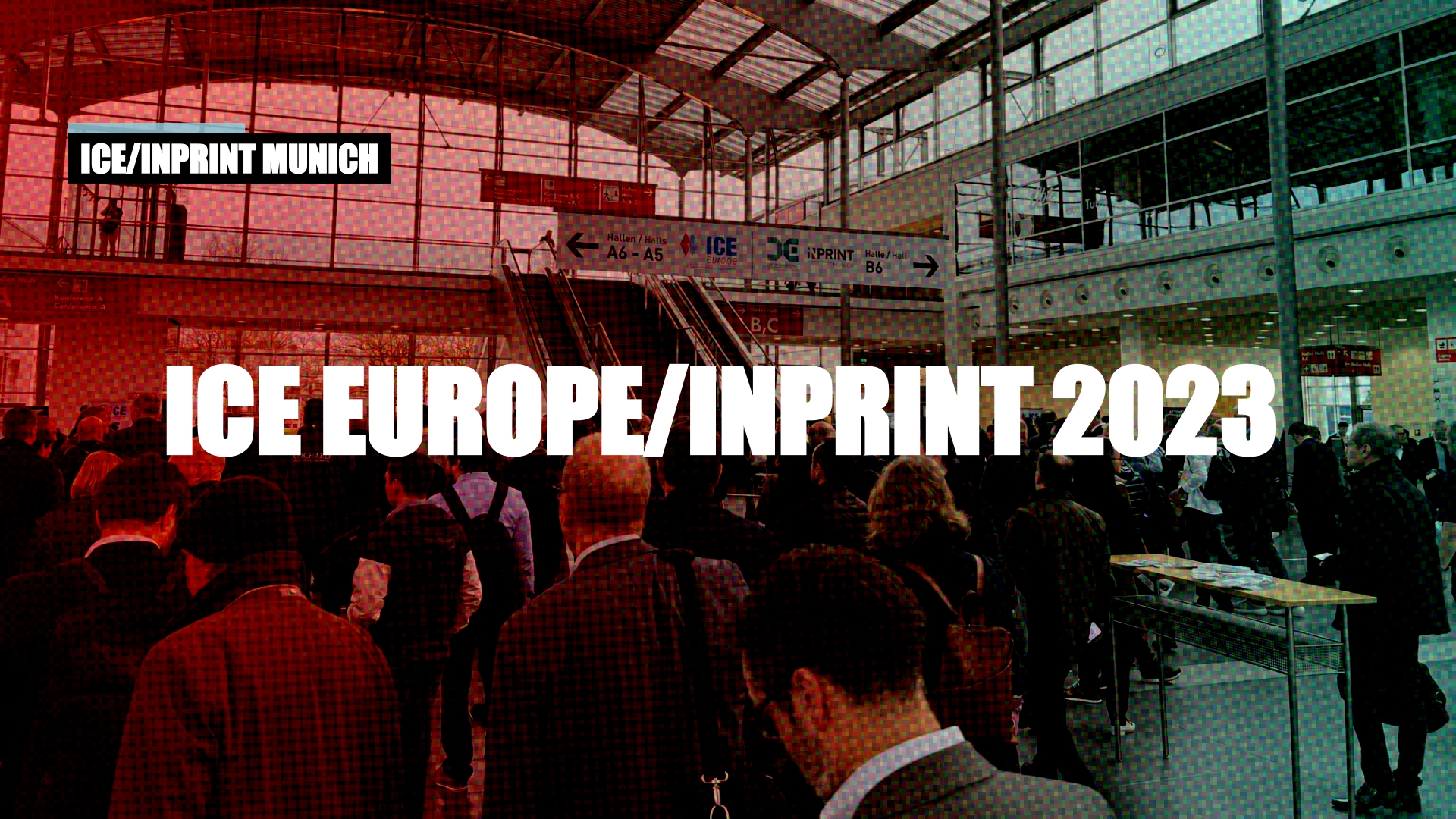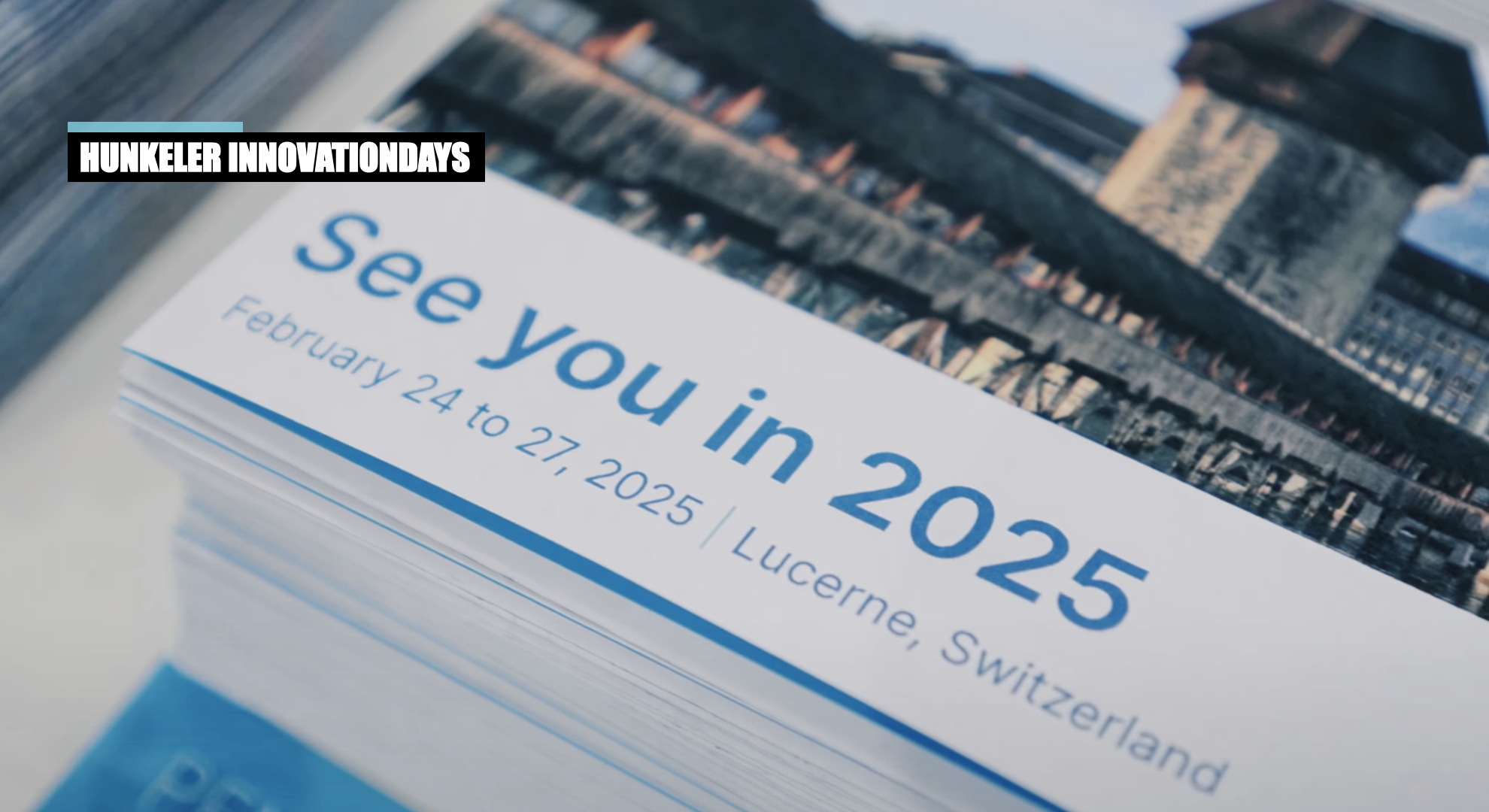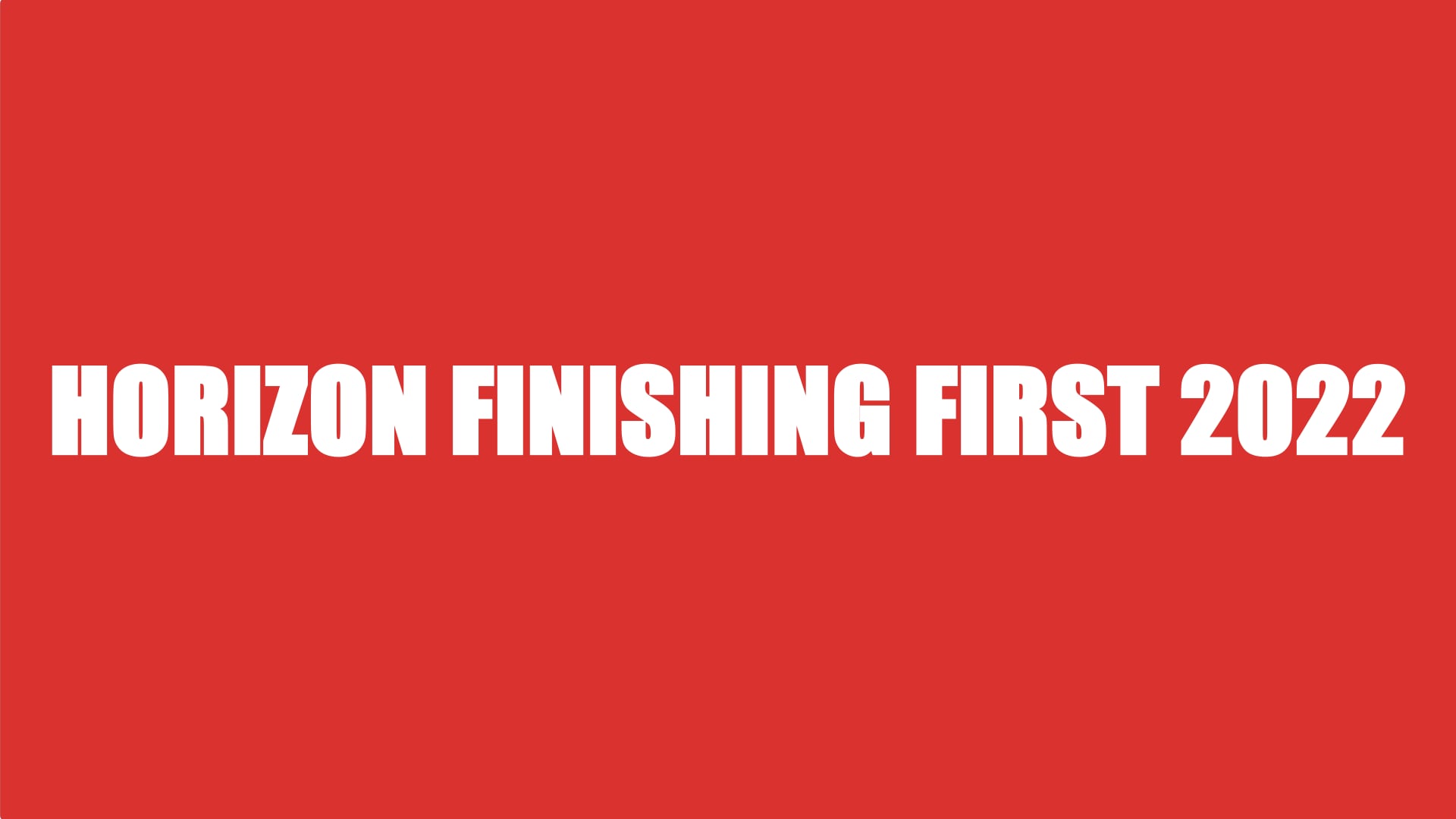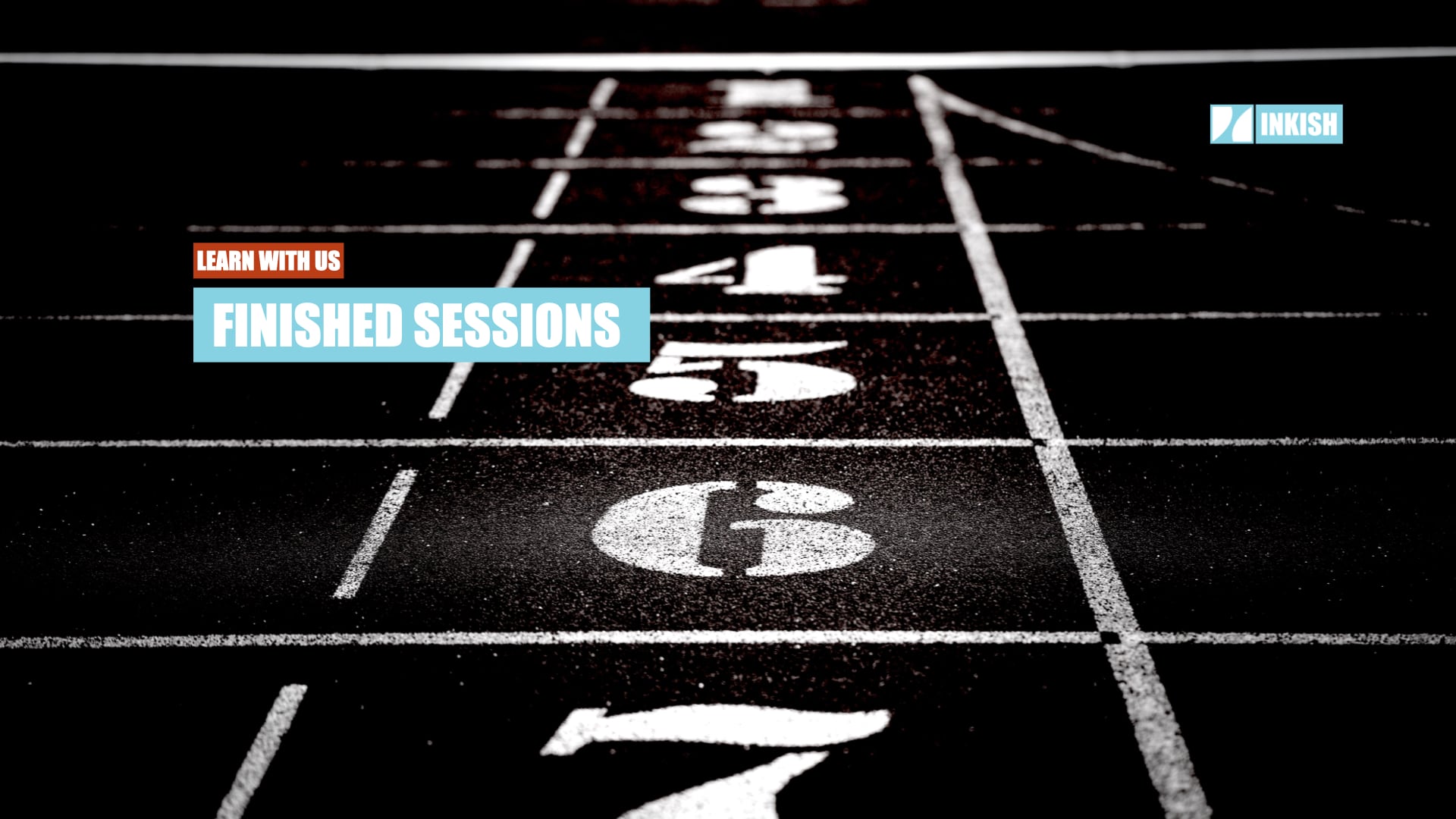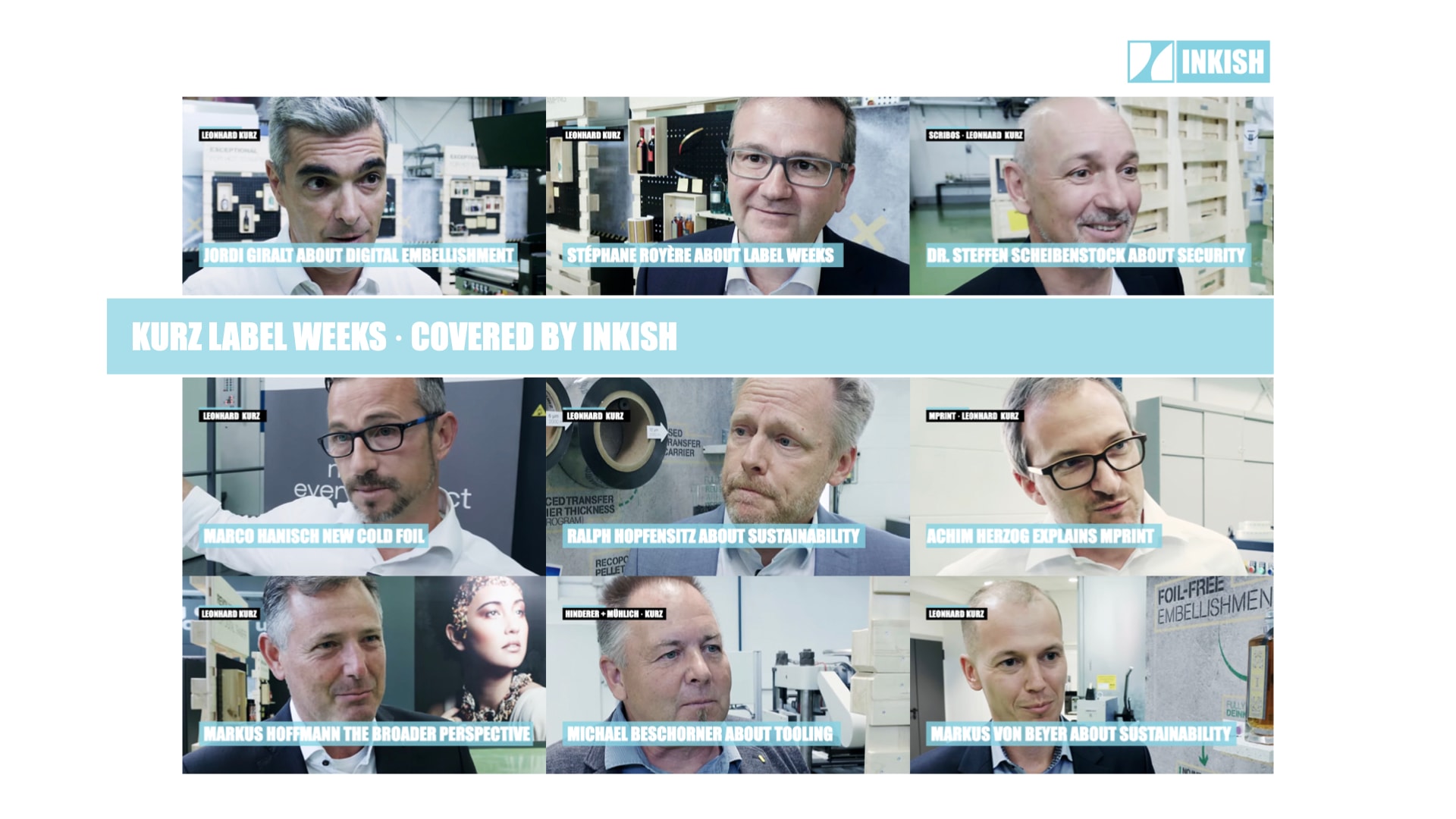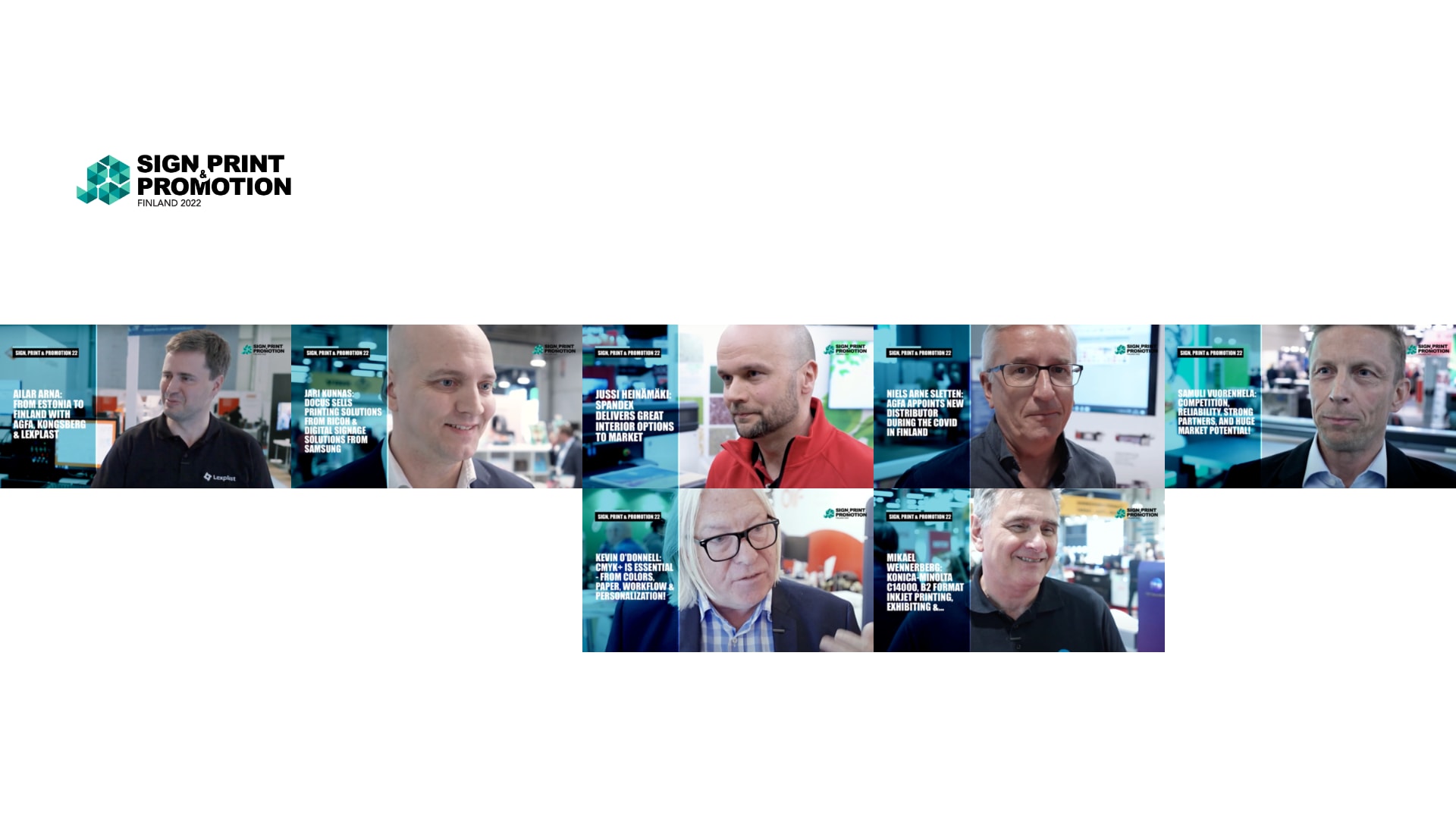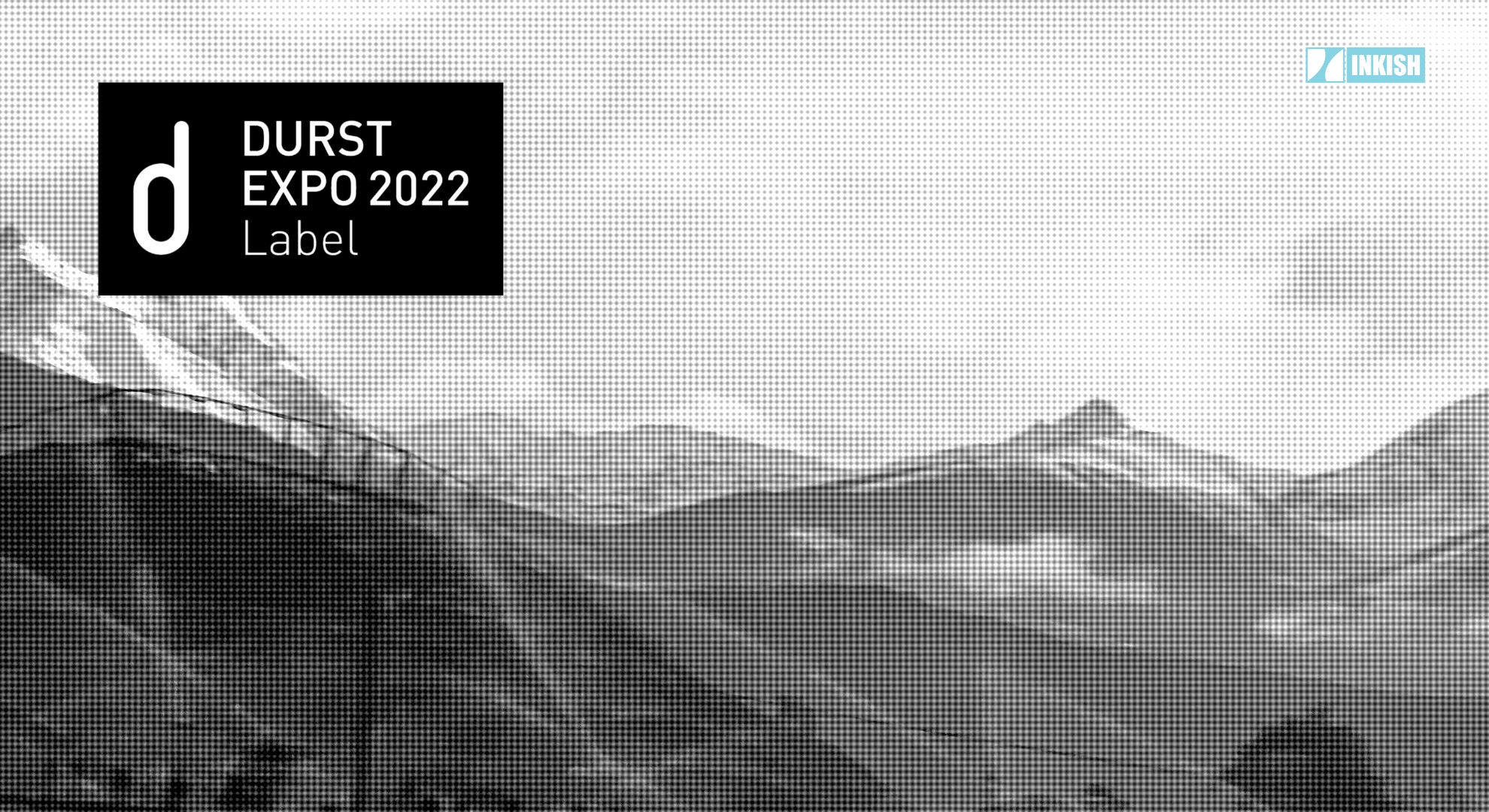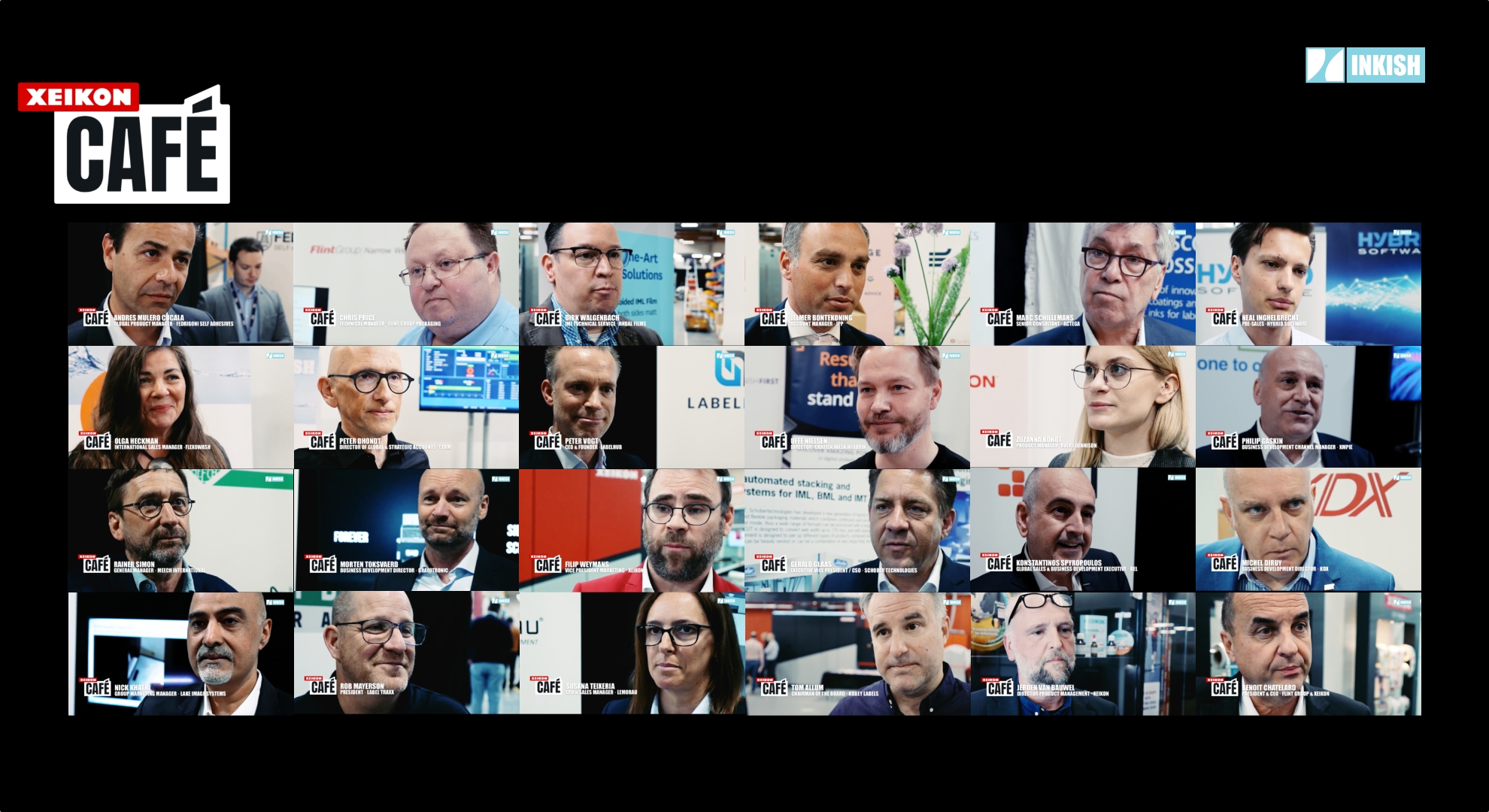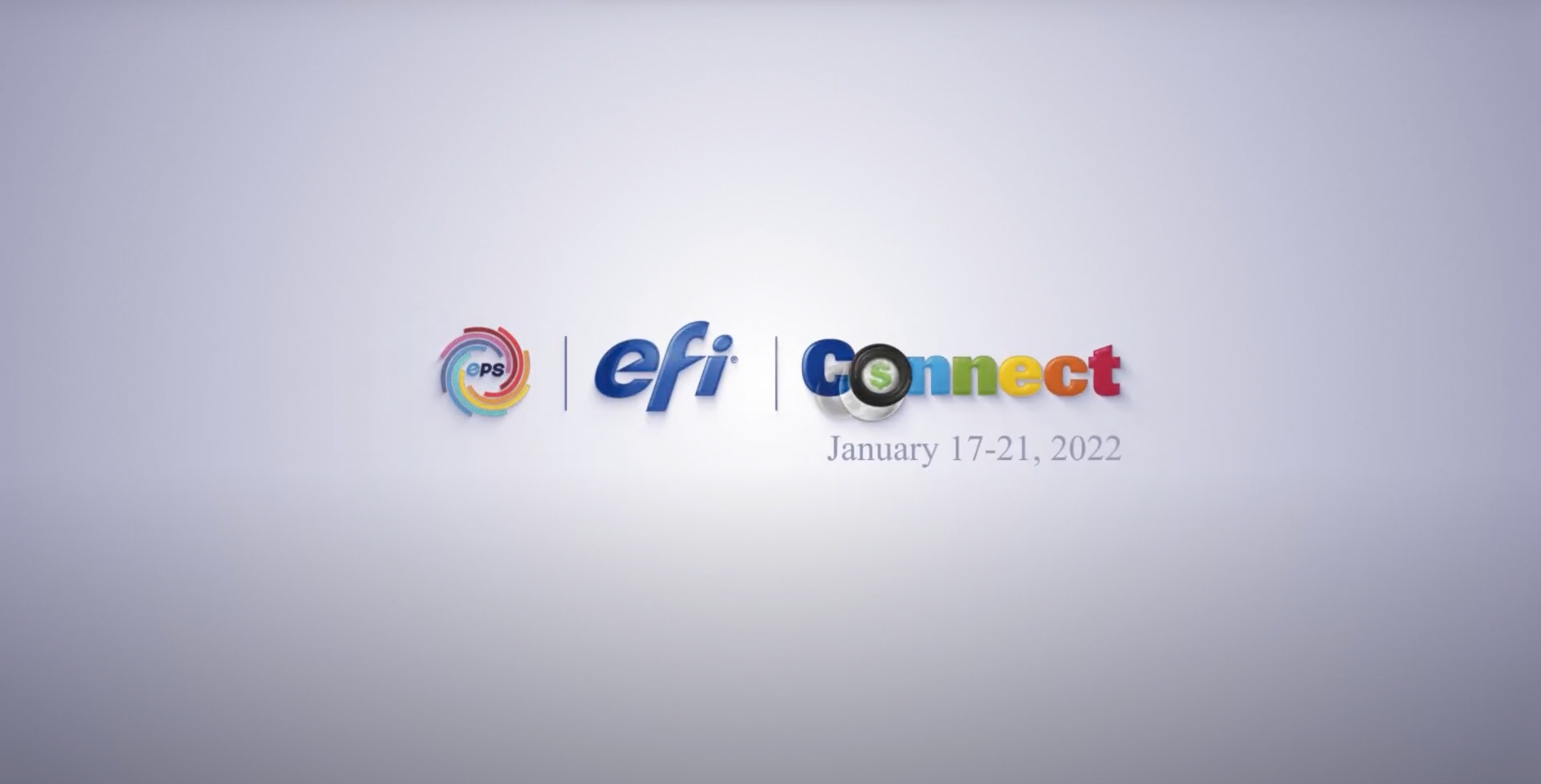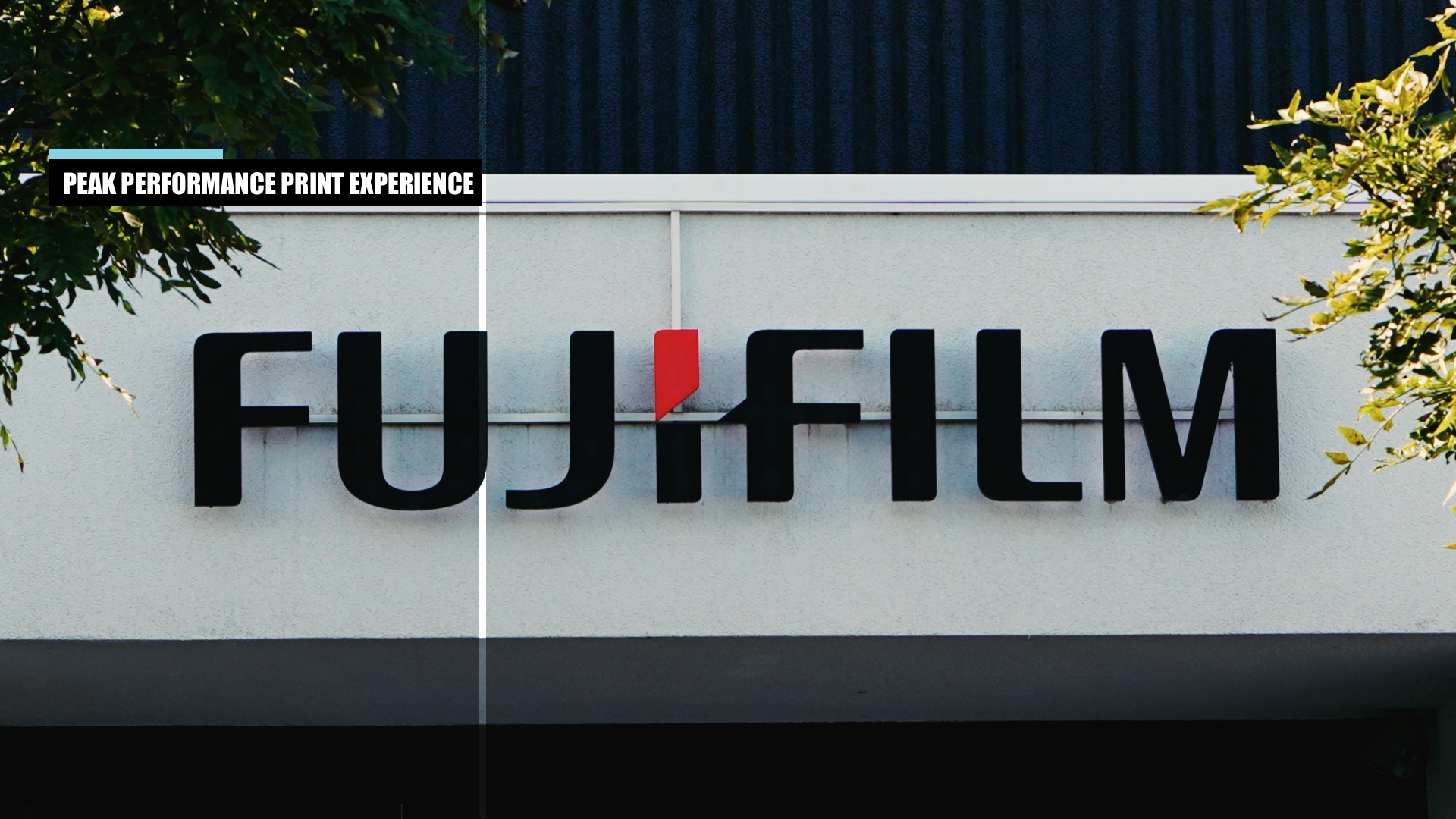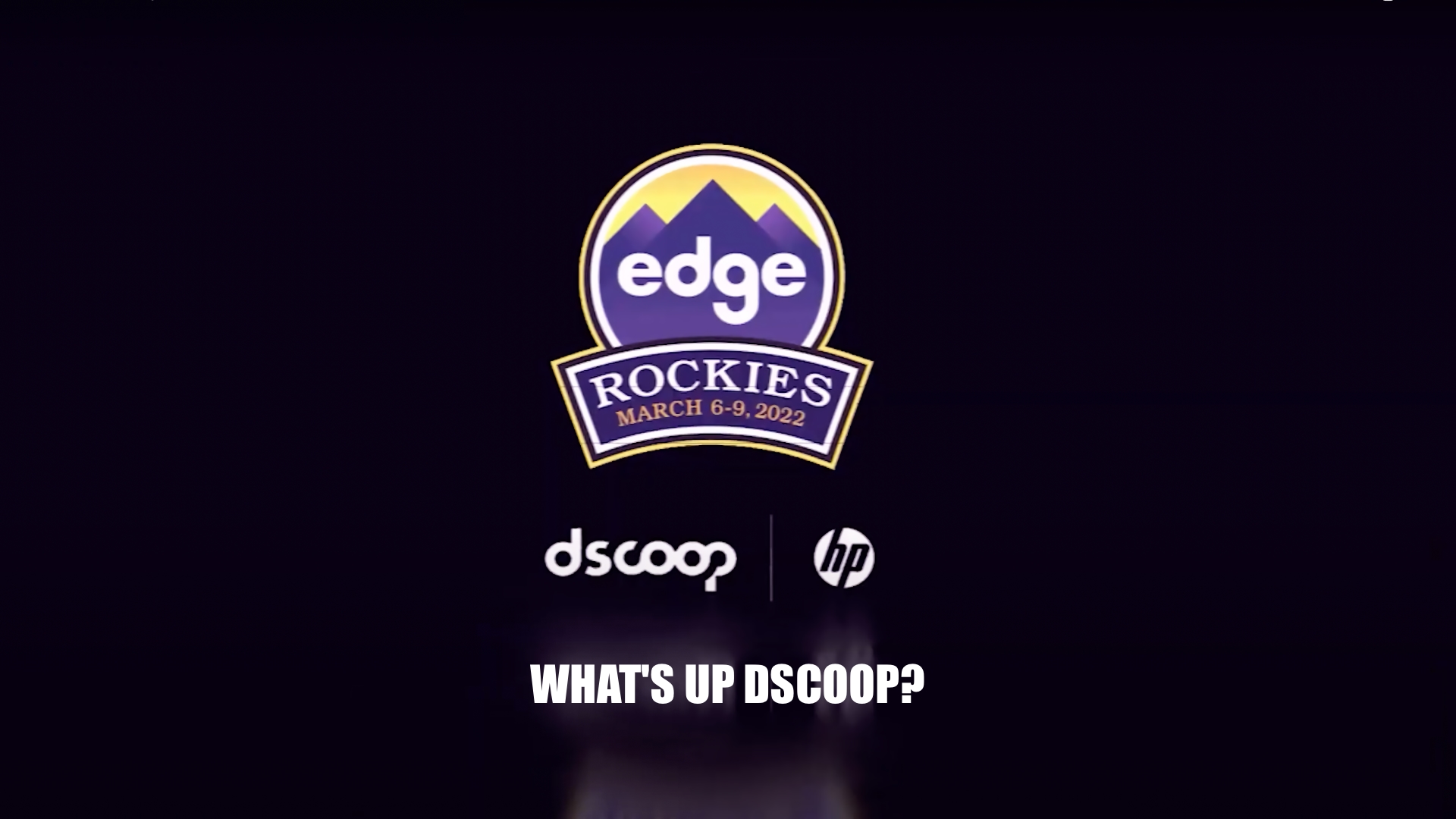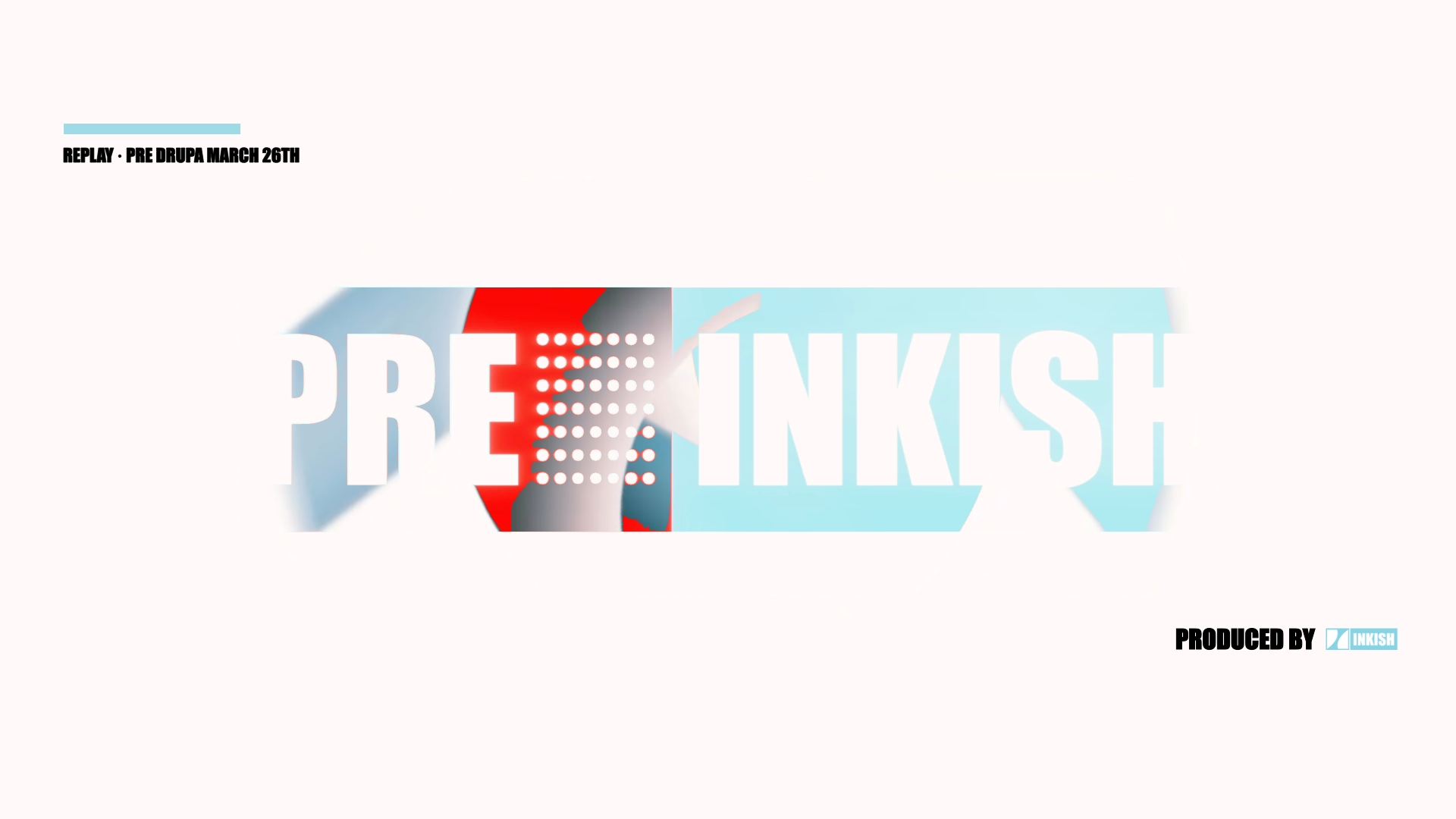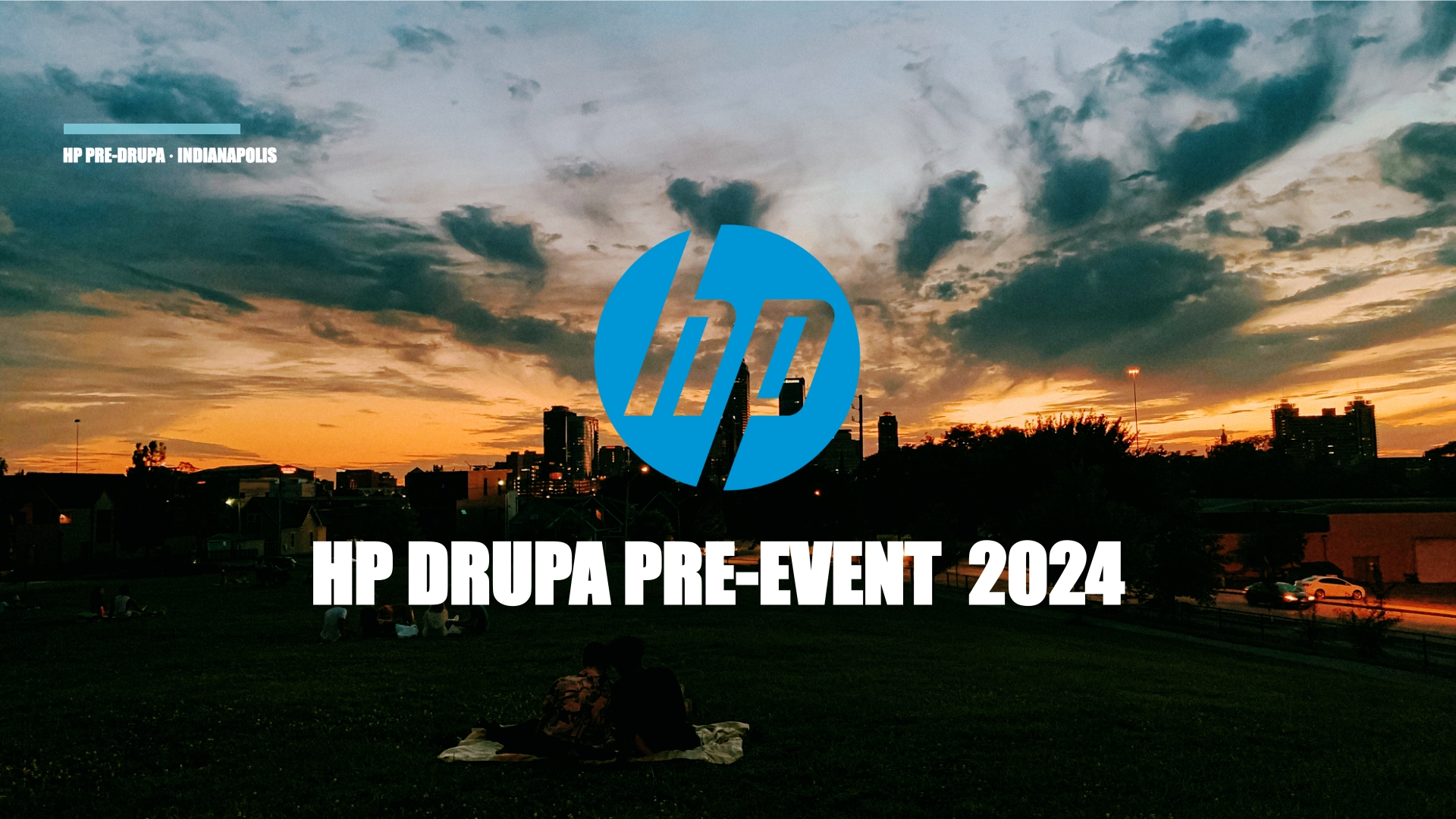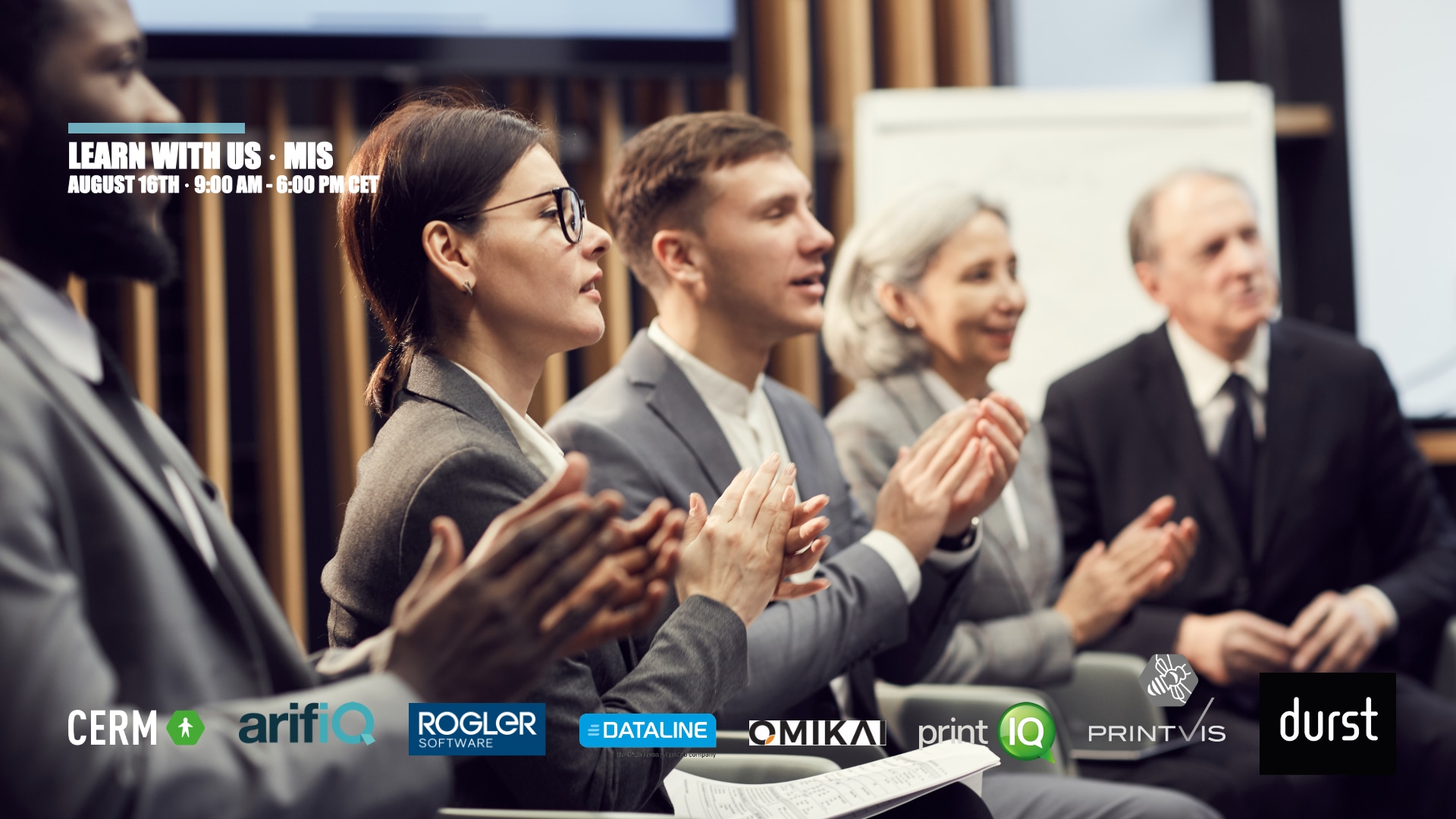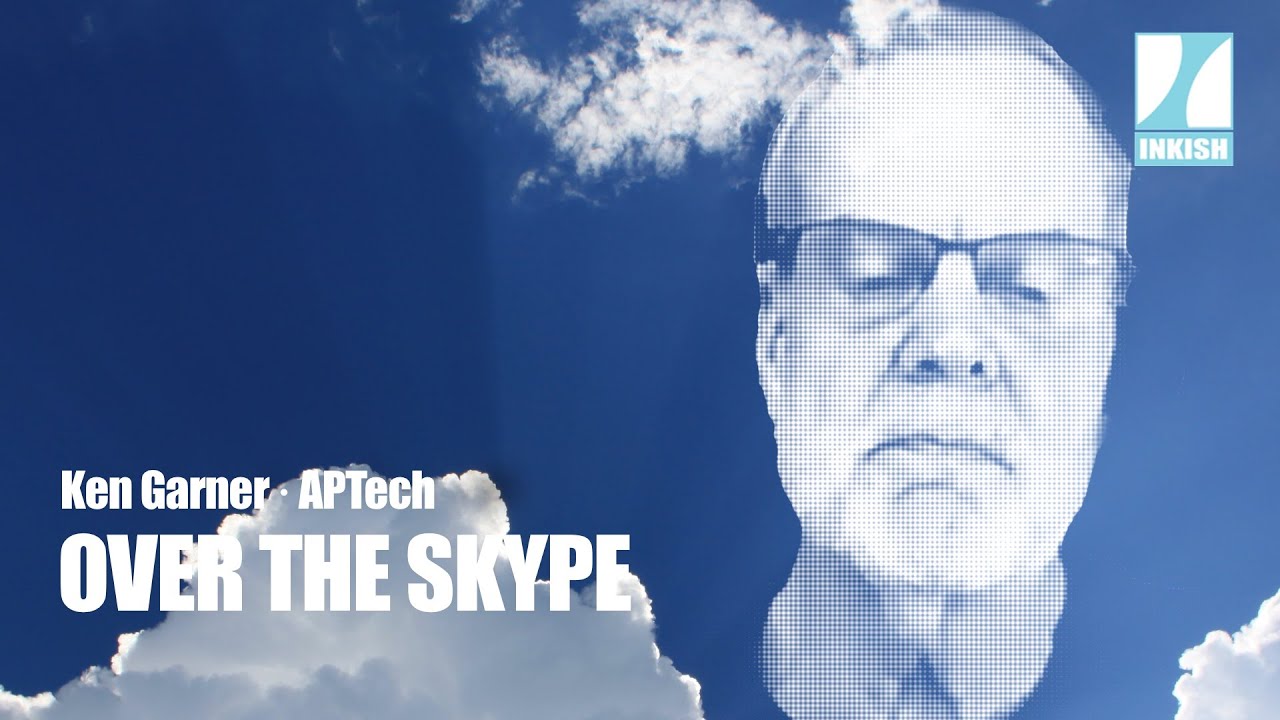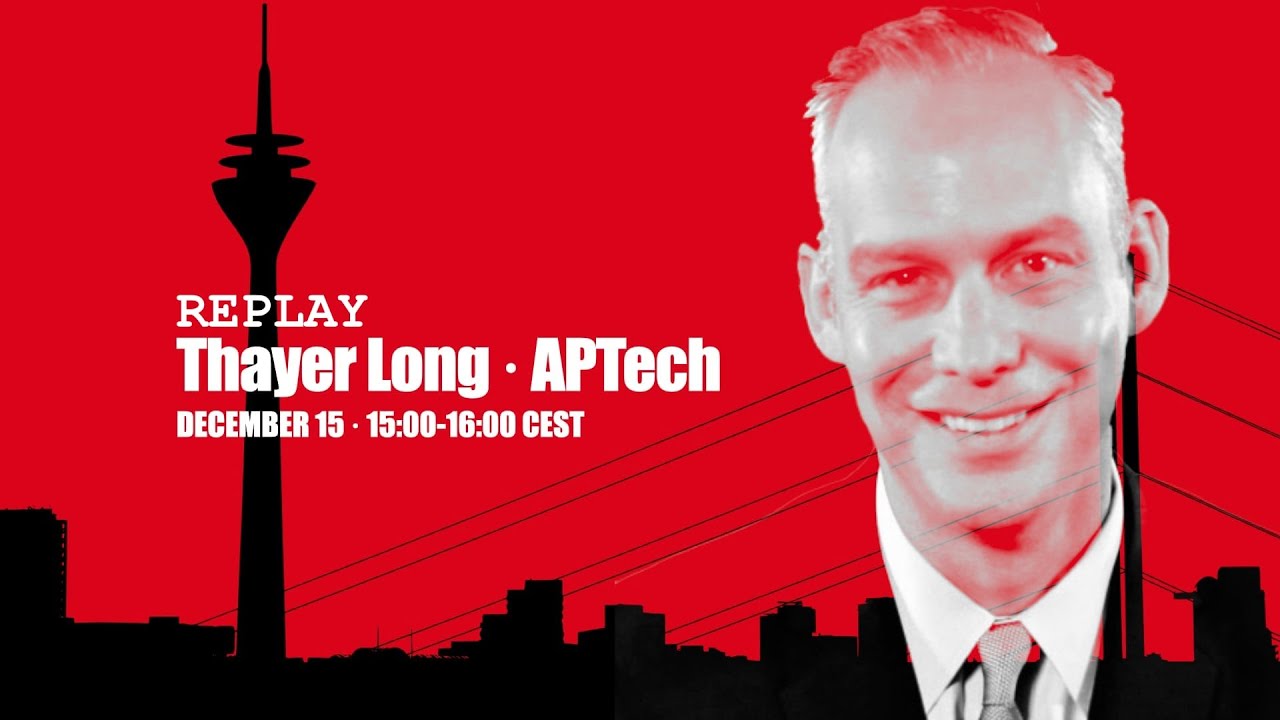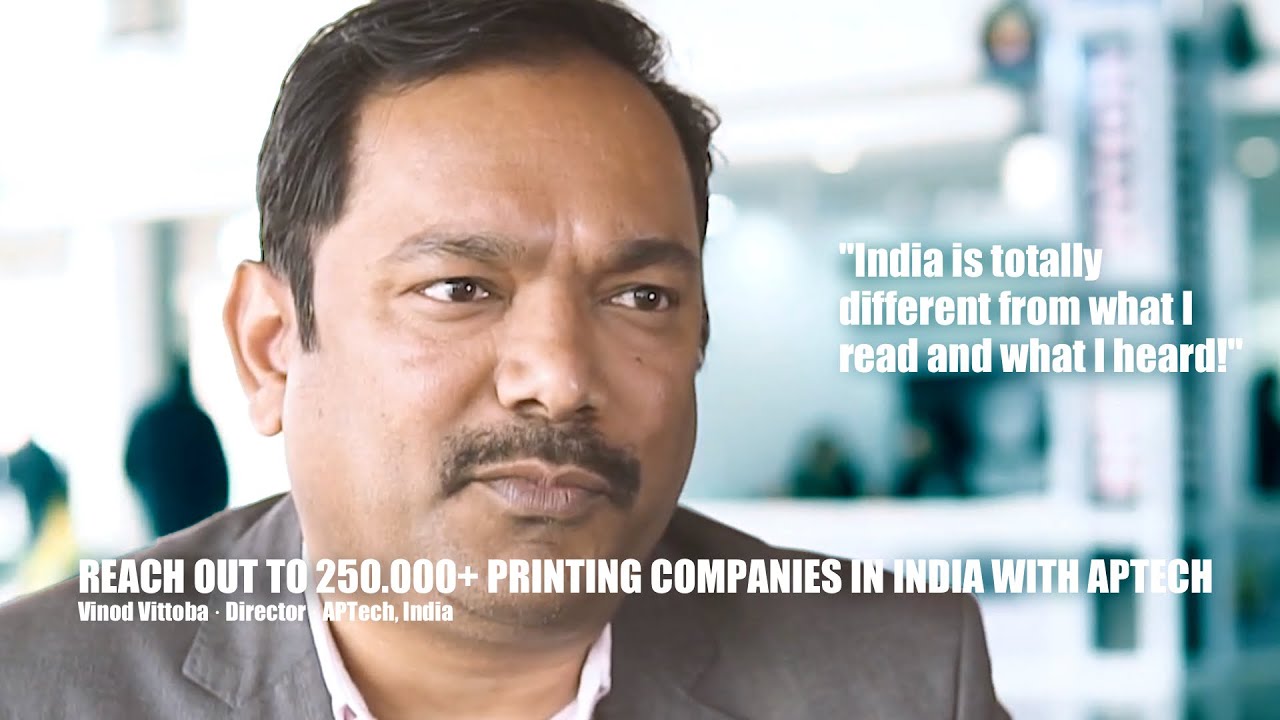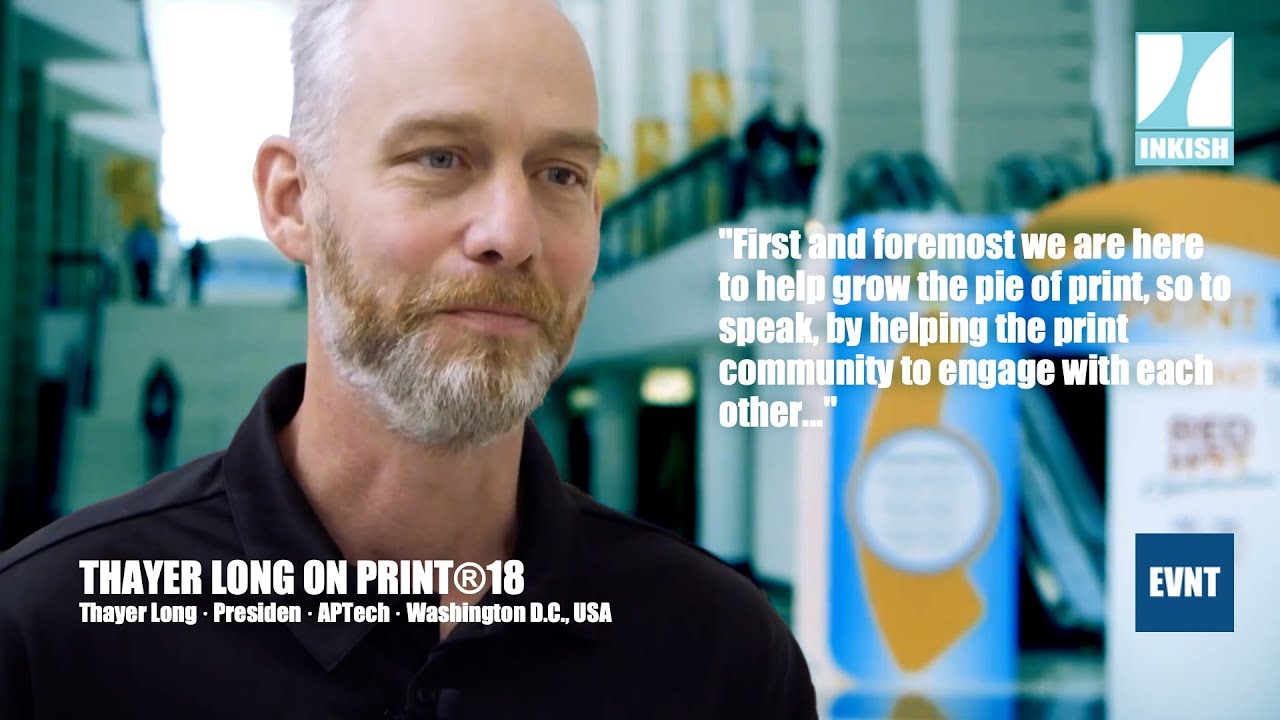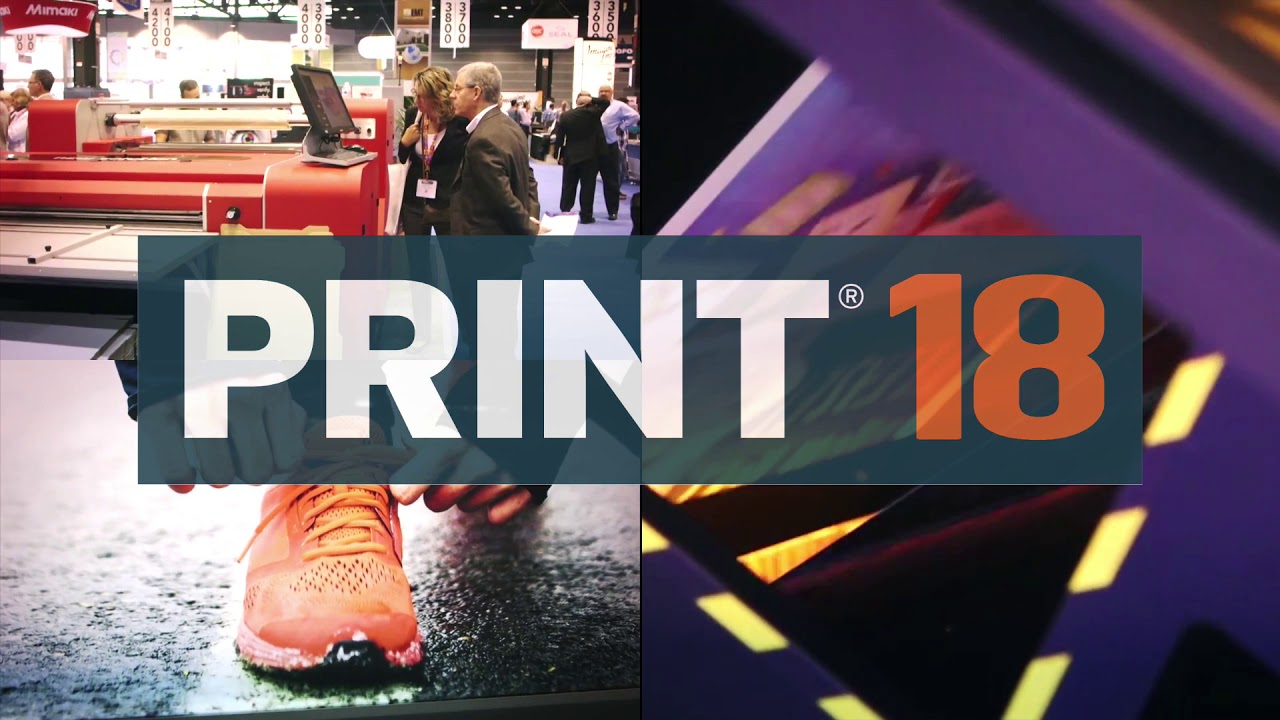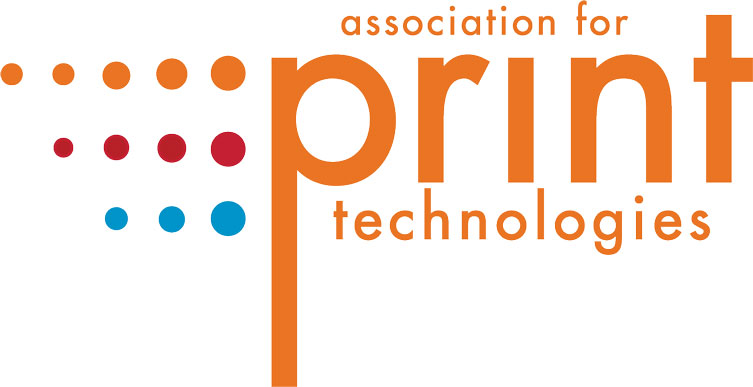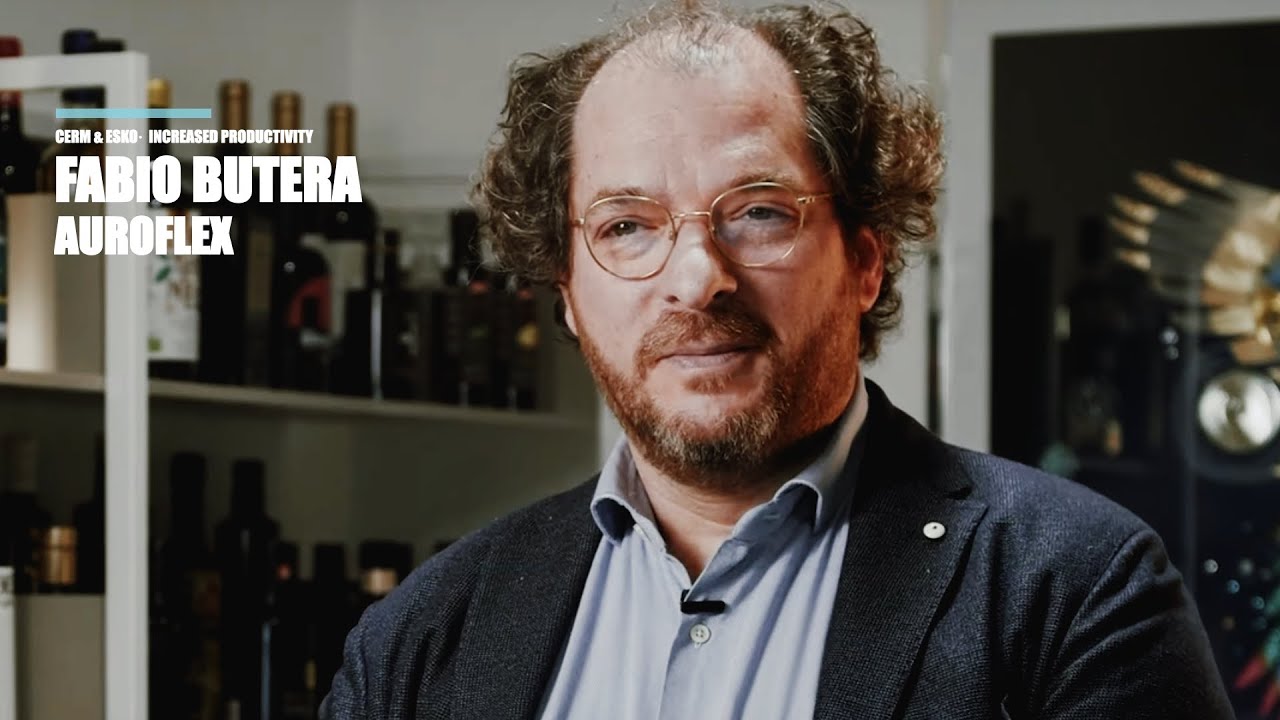Ken Garner · Over The Skype · APTech
Ken Garner is the VP Development & Industry Relations for the American organization, APTech, short for Association for PRINT Technologies. APTech used to be the organizer of GraphExpo and Print shows in Chicago but chose in 2019 to team up with Tarsus to continue the show under the name Brand Print Americas. In this, Over the Skype session, we get the chance to hear more about the work of APTech. We also hear about the first larger virtual conference that due to the COVID-19 was moved from being a physical conference to a virtual one – and many more exciting subjects.
As with all our ‘Over the Skype’ interviews, quality is limited to bandwidth, web-cams, and ability to literally LIVE mix the conversations. However, it works, and with Over the Skype, we will bring you more than 20 exciting people, and angles on the industry as it is right now.
Enjoy!
This is Morten from Inkish TV and we are here at the second last episode today or session that I’m doing here as what we call the Inkish Over the Skype. The gentleman that I’m going to talk to, he’s from Virginia in the US. So just a few moments ago we were in Germany and now we’re going to Virginia in the US on the East Coast near to Washington DC. This gentleman is working for the organization APTEch, and one of the reasons why I wanted to talk to him was simply because when I met Ken Garner in India one and a half year ago at Print Pack India, I felt that we could talk forever.
So do you agree on that the introduction, Ken?
Yeah, that’s a great introduction and yeah, I think we could speak forever here, but we’ve got I’m sure a limited amount of time.
Yeah. So before we talk about any topics you and I can figure out to talk about, can you tell the audience a little bit who you are and what you do?
Yeah, so I am currently the senior vice president for content development for APTEch. So the association, most associations live and die on a basis of the quality and relevancy of the content they create. So I have the great fortune to work with a great team at APTEch to create the content that we think is unique, relevant, and compelling to our members. And right now it’s a very interesting time in a sense that we’re going through some interesting challenges, so much of our content is related to that.
But a lot of the content that we create, I would say the overwhelming amount of content we create is beyond just COVID-19 and really how our members can stay in business, transform, adapt and innovate, to continue to create a sustainable competitive advantage. That’s a lot of what we do.
And for those who don’t know what APTEch is, that’s an organization in the US that lived from NPES, it was called in the past. IT changed name, I think it’s like three, four years maybe five years ago.
Yes. APTEch is short for the Association for Print Technologies, which is a rebrand from NPES. I think most people would know NPES who existed … As NPES we existed for over 50 years as NPES as the principal manager and one third owner of the print and graph expo franchise. So we really were heavy into the trade show, but also at that time exclusively served the OEM community. Then about three years ago, as you mentioned, we rebranded and we began a process of repositioning ourselves and open up the membership to service providers, print service, and mainly service providers.
So we’re a bit larger now in terms of the scope and breadth of what we do, but anxiously looking towards the future.
Has it been more fun to develop into those new directions?
Actually I wouldn’t be part of APTEch if we hadn’t done that because my background really is as a printer. I’ve been in the industry for over 40 years now and 33 of that was building a company that became a rather sizeable magazine printing company, heatset offset web magazine printing company. Then in 2008 transitioned into the association world and spent some time running a company or an association called MFSA, Mailing Fulfillment Service Association, which I then drove to merge with NEPL to form an association called Epicom, which I then drove to merge with ID Alliance and then ultimately wound up here at APTEch.
And it’s great fun. I’m really happy to be here. We’ve got a great team. We’re doing great work.
I have made countless interviews with Thayer Long. He’s one of the people in the US I really like. I think that I feel … Maybe I shouldn’t feel sorry for him of course because … But sometimes I feel a little bit sorry because I thought that the trade show, that is very visual stamp of your work. But I think that he’s actually happy that now you’re changing direction into something that is way more focused on the future of the printing industry because I know he’s very passionate.
And I think that, when I listen to you, I think that you are a good match with him, right?
Oh, I love working with Thayer. He’s a great leader. I’m really happy to be part of his team. And yes, I think that we have created a great vision for APTEch and it is a much more broadly focused, more diversified in what we do to a broader audience. I think really what drives all of us at this stage of our careers is how we can make a positive impact on this industry that’s been so good to us through so many years. We really want to make sure that the future for the industry is bright and secure and solid. So that’s the work that we’re doing and it’s good work and it feels good to do.
I remember the last time I met Thayer that was at Label Expo in Brussels and I made an interview with him at that time as well. I believe that, if I recall it correctly, it was that one of the concerns that he has is sometimes that, and I know we’re not going to talk to too much about him since he’s not joining us, but I’m just saying that as I recall his concern was that instead of trying to have the short term gain, we should also look at the long term gain.
And that is by educating, by, I think he was using the word idealizing things and to create-
Ideation, yeah.
Ideation, yes. And to help the industry by educating, by really increasing the knowledge level. Do I remember right?
Yeah, you do. You have it exactly right. So really as we look towards the future and really want to help script the future for the industry, we also believe that we need to change a bit of the mentality and the perspective of the industry and move it a little bit away from an exclusive focus on manufacturing and really talk about how we create value for customers. And that value is going to manifest itself in a number of ways, not just with ink on paper, but in lots of different ways where print finds a way to create value in the world and in society and among communities.
So this is a big part of our mission as we go forward, which is to expand the vision and really think about again, what we do, how we do it in a way that creates value for people, for communities, for society, and really in some ways more of a business perspective. But it all begins with an intimate understanding of customers and what they want, what problems they experience so that we as providers can be solvers, solution providers for those problems. So, again, it’s great work and it’s fun to do.
But it also sounds to me like a tremendously huge task to take on because one thing is that you can create valuable content, I don’t question that at all. I don’t question that you can get it out to inform the industry either, but both to do the research and understanding the needs and also evaluating and thinking about how the future will be and to … Because it sounds almost like a mission for a mentality change among the leaders of the printing companies in the industry and that sounds like something that you don’t do overnight, right?
No, it’s not a task overnight. And by the way, it’s just not a task, it’s an ongoing commitment. So it’s not a situation like an initiative that has a specific beginning and a specific end. And it’s also not something that we understand we can do alone. One of the things I really enjoy about APTech is we really have open arms to participate and work with anybody who has something to contribute to this process. And the more good minds that we aggregate towards this vision and towards this end, the better we think we’re going to be.
And even reaching outside of the industry, one of the things that we recognize is so much of what we create and so much of the direction that we plan for ourselves is very internal. We’re very singular in this industry, very parochial, kind of an echo chamber. So one of the things that we’ve done is look outside, how can we partner with people outside our industry to get things that we can learn from other experiences, other benchmarking opportunities.
So I began to work with a major university here that has a graduate school of business. And one of our big initiatives coming up is to launch a nine week program around business transformation.
Cool.
Industry transformation that’s going to be created, has been created and will be delivered by graduate level professors. So we have that academic level of graduate level, academic level that doesn’t exist currently in the industry, but also the outside experience and perspective that we can bring. And then we have integrated into that very much the culture of the printing industry. So we have this interesting mixture of perspective that we’re going to share through this program.
But again, it’s about being smarter, wiser and really more expansive than the strategic look of what we do and how we do it.
I like that you say that you have this open approach to anybody who wants to contribute to the, let’s say to that agenda basically, right?
Yeah.
I was wondering, when you don’t have the trade show anymore, right?
Right.
I was just thinking that that might actually open up an opportunity because the last days of, to be honest, the fight between you and the competitors in the market was not really pretty to look at. But now when you have divided the X and the two different sides now it seems like that could open up for even a broader collaboration. Is that how you see it also?
Yeah. I think that again, one of the things that we would like to envision is an industry that really works together more effectively. And again, I’ve got 40 years, more than 40 years in this industry. Some of that time was spent as chairman of NEPL at one point in time. So I’ve been active in a variety of trade association boards including PIA. My frustration throughout that four decades has been that as an industry we’ve really never been able to aggregate our voice in a way that is appropriate, responsible and powerful. We are a huge industry with enormous impact, contribute a lot to GDP in the US here, and yet we act many times as a factionalized industry.
Many voices, too many voices going too many different directions. And we lose the opportunity to aggregate power and really influence the outcome for ourselves and for others. So yeah, I think those of us who have been in this long enough would like to park some of those parochial perspectives and say, “Okay, we’ve got an industry that has been going through significant change. It’s consolidated. It is really winnowing down to the point where I think we can do some significant work, but it’s got to be different and it’s got to be a different vision for the future, but we need everybody to contribute to a successful path forward.”
So yeah, we have open doors, open arms for almost anybody who would like to come to the table and make a contribution.
That’s a great vision and a great saying you have there. It’s funny because I think that from a European perspective, it’s funny, we have to live with 28 different languages and 28 different legislations and 28 different things of everything, right? And then sometimes we look at the vendors and in American and say that, oh, they’re so fortunate, they can produce in one language, they can ship out to a bunch of printing companies all over the country and you can communicate in a more uniform way because you have the same mother tongue.
Then you start looking into the organizations, I think that even in Europe with 28 different countries, we have way more harmonized organizations. We have smaller federations in each country and we join the, when it comes to labor and environment and legislation into Intergraph. And in the US you just have so many different organizations, seems to have different agendas, right?
Yeah. In some way … I don’t know that our vision is one organization to serve all needs. And one of the things I’ve learned is that trying to be all things to all people is not necessarily a prescription for success. I think that the industry can successfully and effectively support some multiple associations because they serve niched needs, specific focus for specific communities within the industry. But I think as multiple organizations serving some specific needs for specific communities within the overall industry, we do need to at some point at some level come together and say, okay, while we represent some diverse communities here within history, we really have to create a vision that is an umbrella vision that really is in the best interest of the industry.
It’s funny that you mentioned that because I interviewed, Monday this week I interviewed Thomas Top and he is the president of the Federation of Printers in Denmark. A very tiny little organization compared to the US of course. But he spoke about the thing that when he started he came from outside the industry and he was saying that, okay, we have a decreasing number of members. The industry in general is decreasing. We need to find out how we become more important and relevant also so we have political influence.
So he actually created the umbrella organization, so the designers, the [inaudible 00:15:00] community and even a lot of other federations were joined in that umbrella organization. And I think that resonates to me similar to what you’re saying, right?
Yeah, it is. I think, again, wherever our industry exists across the world, we understand the need to, again, I think create a very different vision for what we do, how we do it and the value that we create. But if there’s one thing that we’ve learned, I think through COVID-19 in this particular challenge is the global nature of business in the world and what we do and how something that happens on one side of the planet will impact something on the other side of the planet.
And you can’t build walls and you can’t build moats and you can’t protect yourself from that. We are a global economy, a global world. I think the challenges that we face are very consistent across that and so the more time we spend working together as opposed to competing and working separately, the more we do that, the faster we’re going to find some incredible solutions and some incredible opportunities here.
The final question I have with this topic is all the changes that that you just described that APTEch has changed into, I think that’s really a good and productive path you have chosen there. But I was also wondering, it’s actually at tremendously big change in how NPES and APTech is now perceived because when you were more like a federation of specifically for OEMs and vendors in the American market, you are now opening up towards memberships for print service providers of all kinds.
And I think that also from a communication perspective, that must be a challenge too because you now have a different objective basically, right?
Yeah. It’s interesting, despite the fact that we’ve been around as an organization for well over 50 years now, we view ourselves as a startup.
You are a startup.
Yeah, we are a startup. So it’s interesting in the sense that, again, we’ve got this great team but some of us have been around a long time. And to find ourselves in this startup world with the challenges that young organizations have around branding and around value proposition development and go to market strategies and figuring out how we create our own unique value and differentiate ourselves, those are all kinds things that we’ve had some practice at over a number of years. But we are a startup and it’s both challenging and there are sleepless nights that are part of that process, but it’s also exciting and filled with opportunity. So it takes a lot of energy.
Yeah, I can tell you Inkish is now six years old and I consider myself a startup still.
Yeah. Yeah.
And I actually like … Sometimes startups is in a beginning phase of course, but I think that today is all about reinventing yourself, analyzing a situation, not adapting to a situation, but to take advantage of the situation, developing new services, new ideas. As I explained to you before we started filming Over the Skype, I would much rather prefer to sit down with you and have a dinner and drink a glass of wine and just chit chat with each other. But since we can’t do that the technology gives us new opportunities to even broaden our conversation to other people that might be interested in it, right?
Yeah. Yesterday we did a conference that was going to be a face to face conference that we switched to virtual here on a quick pivot, had over 400 participants across the world.
Wow. Wow.
And the main theme was business transformation and how we adapt and that important notion of self renewal on an ongoing basis. You just can’t continue to do the same thing indefinitely and expect to live. One of the statistics that was cited was small businesses here in the US have a life expectancy of about eight and a half years, Morten.
Really? Okay.
Even S&P companies over a long period of time, their life expectancy and tenure has declined steadily and is expected to continue to decline. So what is the answer to that? The answer to that is innovation on an ongoing basis, the ability to adapt and transform, creating cultures that are all focused on self renewal on an ongoing basis. So that’s a fun topic for us, but it is a reality. But back to your point about technology, we could never have done that with that large a group spread over the geographic boundaries that we encountered yesterday without the technology that we have available to us today.
So it was new for us, it was our first virtual event, few glitches, but it came off okay. So a lot of fun, a lot of challenge but at the end of the day good work. And it was all … We didn’t charge for it. Again, this is part of a commitment to an industry that we feel strongly about.
It’s funny that you mentioned that this, going electronic with things, because I don’t know if it started to balance, but you remember when when the internet came the advertising revenue models were completely different when you went online advertising compared to trade meet your magazines in general.
Yeah.
And I was just wondering if … Because content costs the same whether it’s online or offline. So I’m just wondering if people will be ready to the future to also contribute and pay for content that is delivered via Zoom or Skype or conference systems or there will be same similar tendencies of sliding prices when it comes to electronic kinds of events.
Yeah. I think there will be, Morten. So let’s just take this event that we did and we pivoted to virtual. If it was face to face in the speakers, in the expenses, in the venue and the hotel and the travel, all those expenses have to be covered when you have an in person event. What we had yesterday, there was no travel, there was no hotel, no food and beverage expense, all those traditional expenses disappear. So I think that while we can’t continue to give content away for free, none of us can, there needs to be …
At the same time some of the expense associated with it on face to face events disappears as well, so perhaps there is a sliding scale. But I will go back to something you and I talked about before too, which is there will never ever be a total substitution for the value of a face to face gathering. I think people like to be parts of communities and part of that community experience is on occasion, getting together face to face and really just sharing in a way that is much more difficult to do, creating that engagement level.
It’s much more difficult to do as we’re doing now, as opposed to if we were sitting in the same room, sitting in two chairs looking at each other. It’s just different. But back to your point, I think there will be a sliding scale and we’ll see how all of that settles out.
Yeah. And it’s funny that you mentioned that, I heard somebody, I can’t remember who spoke about that. I think I have actually talked to more people in the past two months than I have done in any other two months period. And I wouldn’t say that I feel lonely because I have my wife and my kids around me here of course, but I haven’t seen many people in person in those two months that we have been in, not in quarantine and maybe not in a complete lockdown.
But I saw my mom, she was sitting out there in a chair and I was sitting two meters away from her with the safety zone, thing like that. I think that one person mentioned that the social contact now adds a dimension that we rarely talk about, that is the physical. Maybe not the fact that we touch each other or shake hands or give each other a hug or something like that, but the fact that we have a three dimensional presence maybe.
Yes. Yeah, it is. Again, I’m an old school kind of guy and one of the great pleasures when I had my printing operation and we had around, at my peak I had around 300 people. The most fun I had every day was getting up from behind my desk and walking the plant floor and just making human contact with people that I had grown up with in the business and that were part of my operation and knew them personally, asked them about their kids, asking them about the house they just moved into, whatever it is.
Oh somebody just had to go to the hospital. That kind of engagement is hard to replace. Now we’re quarantined and so I hardly ever even see our APTEch team face to face anymore, and I miss it a great deal. But I think one of the great questions that everybody has to ask themselves now, Morten, is what is the new normal going to be like? Because I suspect that what we enjoyed before in terms of the actual physical presence in a working environment is likely to shift forever now and not be quite the same as it was before.
But for all of the people that are part of our industry, I think that’s a great question for them to be able to explore now. What’s the new normal going to be like when we get to the other side of this and where are the opportunities that are associated with that new normal that I can leverage and optimize to my organization’s advantage?
I can tell you that of course I also speculate about the new normal in that context, but I don’t know, you probably have that in the US as well, but in Europe we have, I think it’s called [MOMI 00:25:27], which is like a database that register all reasons for why people die. So you have all sicknesses, everything. And the latest numbers that came out one and a half week ago was actually that the total deaths number in Europe is lower than in a non-COVID-19 time.
Yeah. Again, we’re human beings, and I think we are driven to create relationships.
The reason I say this is because I had an interview or conversation like this with Cindy Baluik from a [inaudible 00:26:15] Publish a couple of hours ago and she said to me, “So how do you think the thing will be after the coronavirus or when we get back to more normal thing?” And I think it’s also a decision that we do between humans because passing the street is a dangerous, right? Going into a cruise ship is dangerous. Entering an airplane is dangerous.
And I think that the social acceptance of danger is in relation to the chance of getting a disease, for example. So I said to her and we agreed on it because I think we’re both very social people and usually when we meet I would give her a hug, and we decided that we will do that afterwards also.
Yeah. But you’re right, it’s going to be an individual decision that people make. As reluctant as I am-
Would you shake my hands next time I see you or?
Again, I would be inclined to shake a hand of a person that I knew. If it’s a complete stranger, it’s going to be it … Listen, it’s a two way street. Morten, if you’re comfortable in shaking my hand I’m comfortable in shaking your hand and I think we’ll be just fine.
So we take the chances on a 50/50 basis, that’s what you’re saying.
We don’t know.
We don’t force each other to shake hands.
Yeah. But if I’m meeting somebody for the first time, I might be a little more reluctant now than I would have been in the past. My first inclination to meeting somebody I hadn’t met before would be extend my hand and shake it. So this is the thing, what is the new normal going to be like? It’s going to take some adjustment and-
And it’s going to take time of course.
If this is the first crisis of this nature that we have and there’ll be others to come, perhaps, perhaps more likely, we’re going to have to make adjustments in terms of how we physically interact with each other. And younger people will set their own standards and norms and the old guys like me will still be captured in the past and still miss the days. If handshakes go the way of a horse and buggy, I still will want … With some people I will reserve the right to shake their hand and give them a hug if they’re so inclined.
I can tell you one of the interesting things that my business development manager, Henrik and I spoke about today, because we have of course spoken with a lot of people over the past couple of weeks also to ensure that there’s still some Inkish afterwards. And I can tell you a quite interesting thing is that I think a lot of people have been a little bit surprised, the postponing of Drupa for example. I think that Drupa is the biggest trade show in the world, has been the four years of recurring things, has been also the development time for introducing new products.
We have talked to all this … This week I think I’ve got maybe seven, maybe eight huge companies in the industry saying that we will never go back to develop around trade show because when a trade show is postponed, like the one, Drupa, for an event and for the time that because of Corona or a virus, all our business basically stops. So that will, for sure, I believe, change.
Yeah. The go to market strategies for all companies that have in the past used trade shows as a major part of their go to market, or their marketing and sales strategies, they’re going to have to rethink this. But OEMs in the US and everywhere have been, I think, hedging their bets against trade shows for some time by building their own demo centers.
Oh yeah. Oh yeah.
So instead of picking up a lot of equipment and taking it to someplace along with a huge team of people that you need to support that equipment, you build a good demo center somewhere, it houses your administrative functions as well as the ability to demonstrate your equipment and you bring people there, you control everything, the humidity, the environment, everything about it. It’s a perfect working environment that demonstrates your equipment. So I think that that shift has been going on for some time.
I know at Print 18 one of the things we had was a virtual reality demonstration.
Oh reall?
We had a press there and we had a VR kind of demo of the press. Now, again, in my experience I bought a fair amount of press equipment and I can tell you that that VR experience to me was far superior to watching a press operate and standing 20 feet away in a cordoned off area, watching a crank off impression somewhere. Being able to get inside that press, open up the side panels through VR, looking at all the gears, the bearings, the rollers, all the internal parts of it, fascinating to me.
The only thing that was missing was looking at the final product, which also could be added to a VR experience. So if you could-
Or you could have shipped it in advance or afterwards to get it-
Yeah, absolutely.
… so you could sit quietly and look at it and compare it maybe to what you already have, right? There’s a lot of opportunities there.
Yeah, absolutely. I think the point I’m trying to make is technology has a way to disintermediate a lot of things as we go forward. So it’s going to be interesting. But again, the common, and I’ll always go back to this, there will always be the need for some type of event that brings people together physically, I think. But whether or not we’ll see a return to trade shows, whether it’s Drupa or others that are exactly the same, same scale, same scope, that’s for customers and providers of solutions to decide.
That will of course be very exciting because a lot of people are vesting on having the trade shows of course. That’s not your business, not my business anymore. So from that perspective we don’t care about trade shows for a moment. However, the final topic I want to touch upon before we close for today is when you and I we met in India, that was in a city called Greater Noida just 25, 30 miles outside of New Delhi. That was talking about germs and talking about different potential health risk when you’re not grown up in that society is of course something that is quite interesting.
But one of the things that I really liked about it was that you remember that garden party?
Yes.
What do you think of that? Because that was like when you go to a trade show in Europe or in America, that is not part of their agenda, to have outdoor show with thousands of people and out door food service in that sense. And I don’t know if you know that, but I heard from [inaudible 00:33:39] that the rock band was actually in to please the western people coming in there. And I found it was a little bit funny to hear it because it was not the kind of music that I normally listen to.
Yeah, well it’s true. That was a cover band that was playing a lot of Western classic rock. But I really enjoyed that experience. I don’t know whether we could ever replicate it now given the situation and conditions, but it was an event that extended beyond the trade show.
Yeah, that was really fun to be there.
It was an outdoor event as you recall and it was great fun. And to watch the others, watch people who were really part of the enormous printing industry in India and how they interacted and how they created their community, it was very impressive. But it’s going to be hard to tell whether or not that would be something that people would be comfortable with in the future.
Yeah, that’s for sure. So though it was maybe not the most positive ending note, I would still like to thank you very much for your time here with Inkish Over the Skype, Ken. I wish you an APTEch and Thayer and all the nice people at APTech all the best with your venture. And again, thank you very much for your time.
Oh it’s my pleasure, Morten. And a thing I look forward to greatly is an opportunity for us to share an adult beverage sometime and be looking across the table and having a handshake in the process.
Can’t wait. Thank you, Ken.
Thank you.


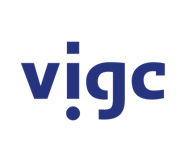















No Data Found.
Content for this section will appear here once available


